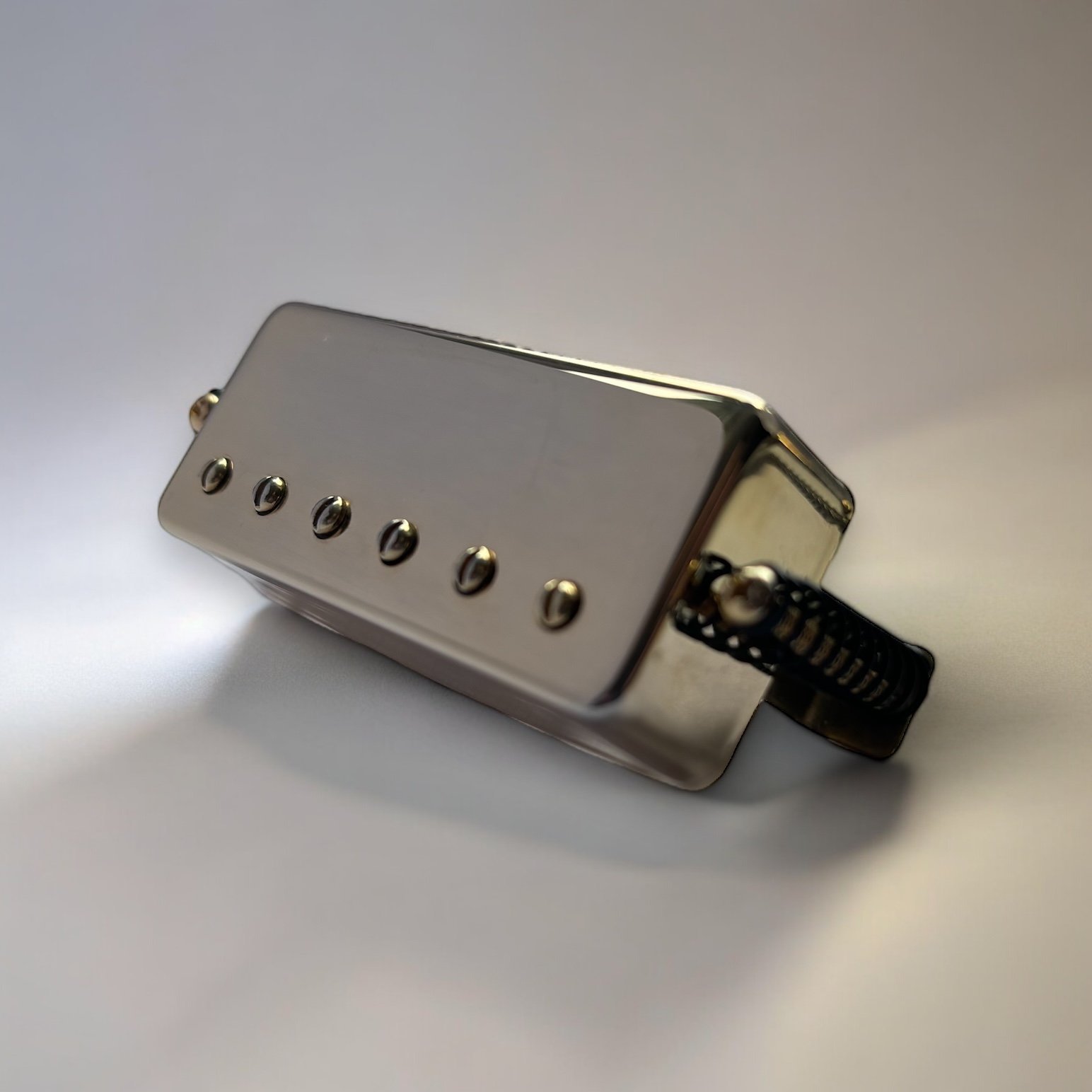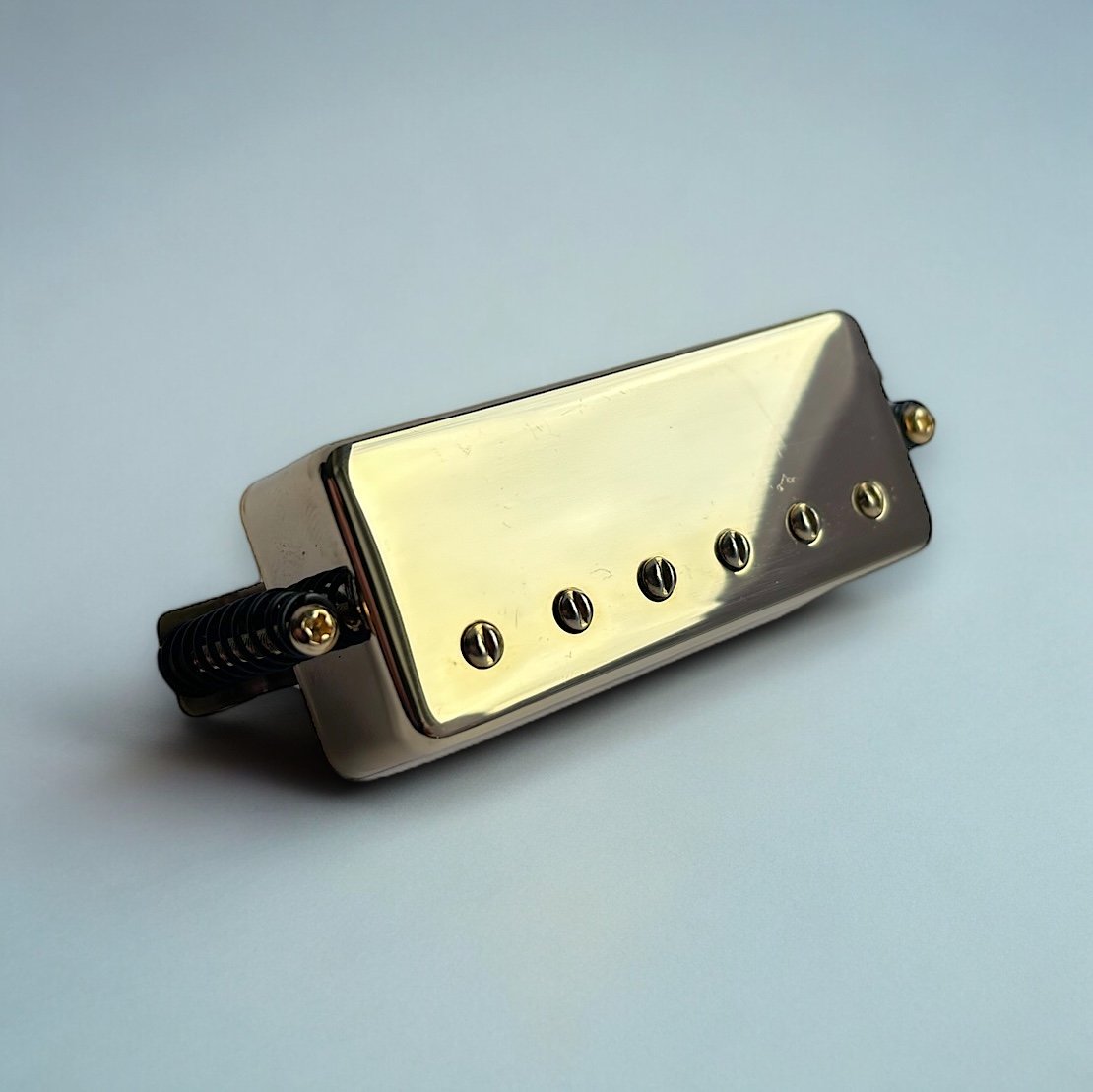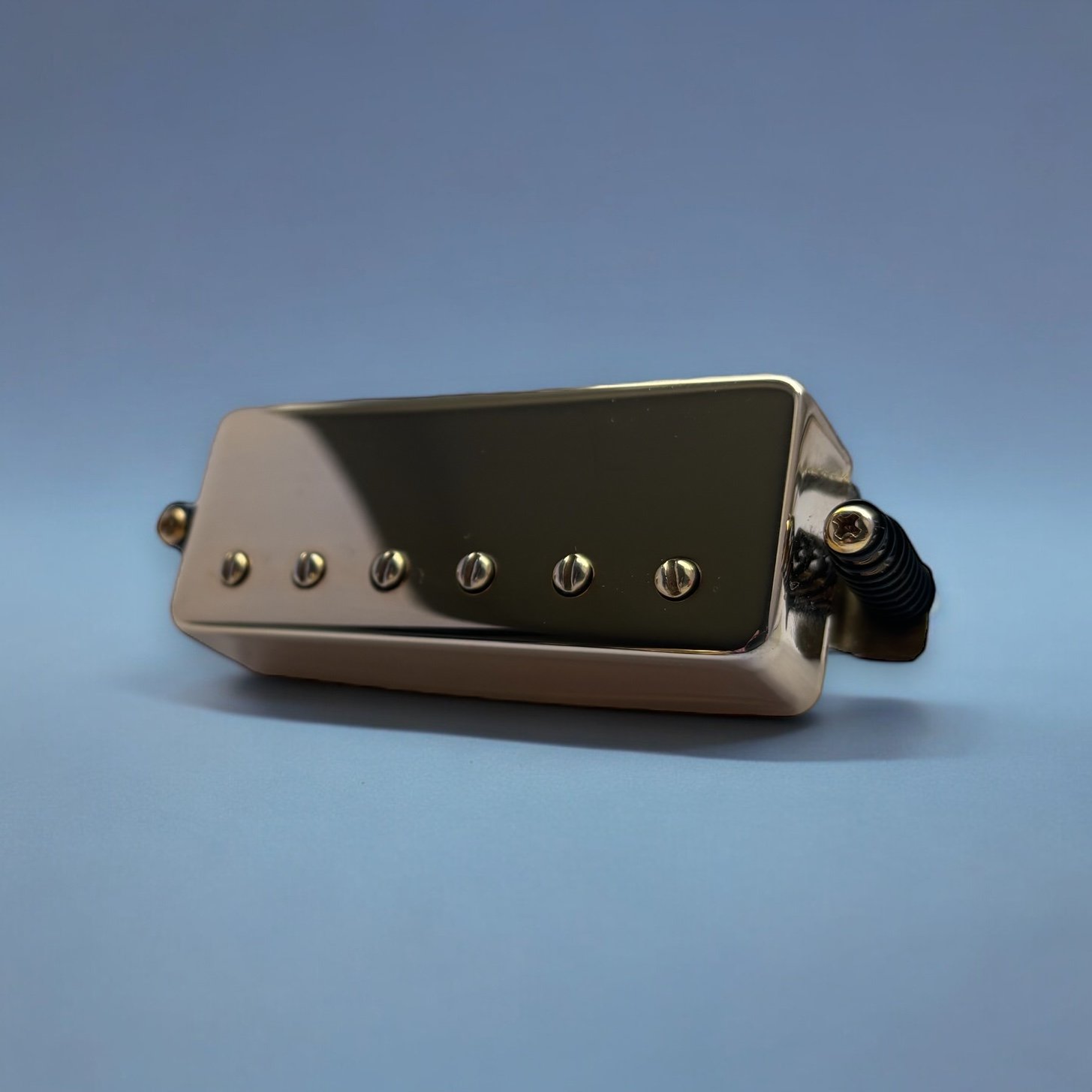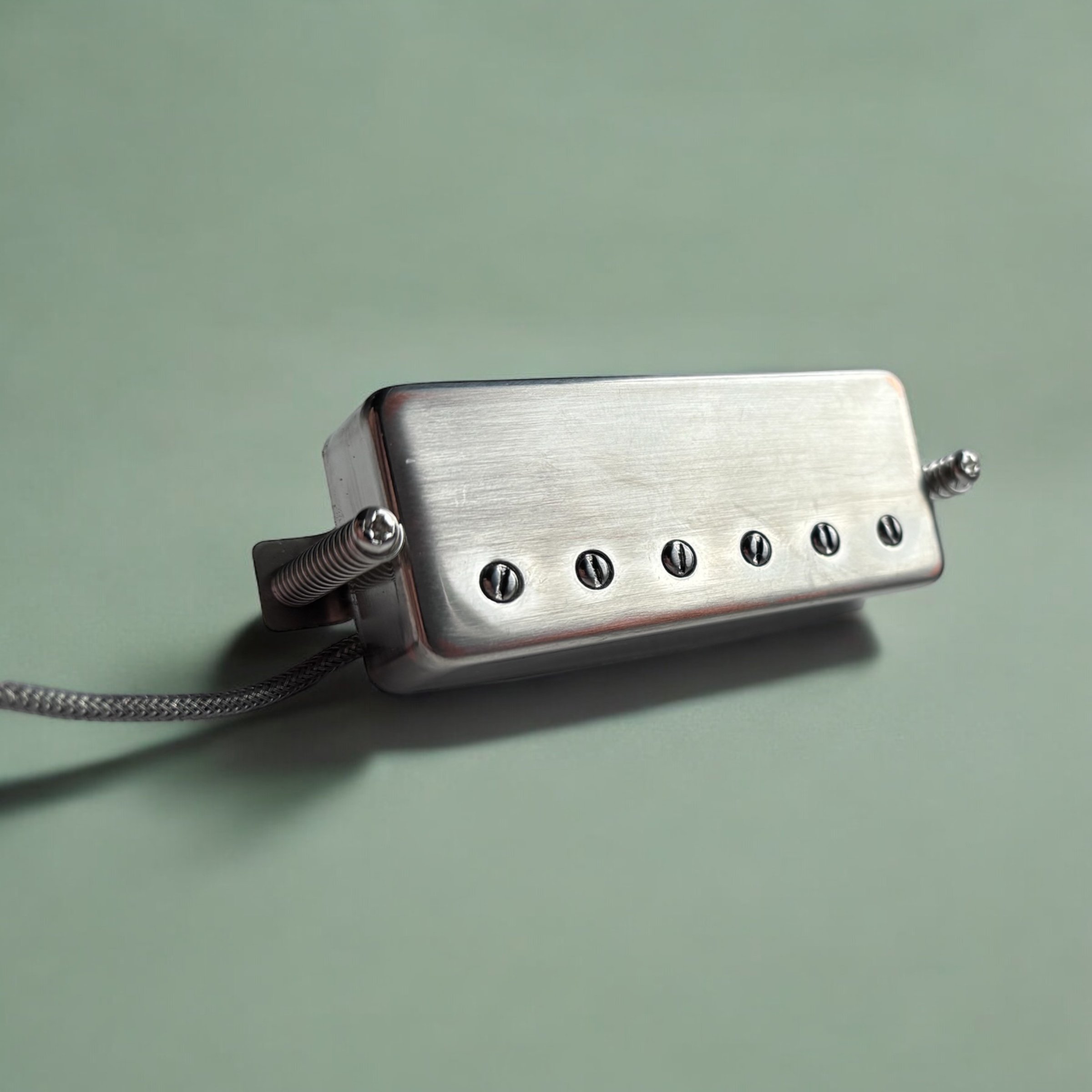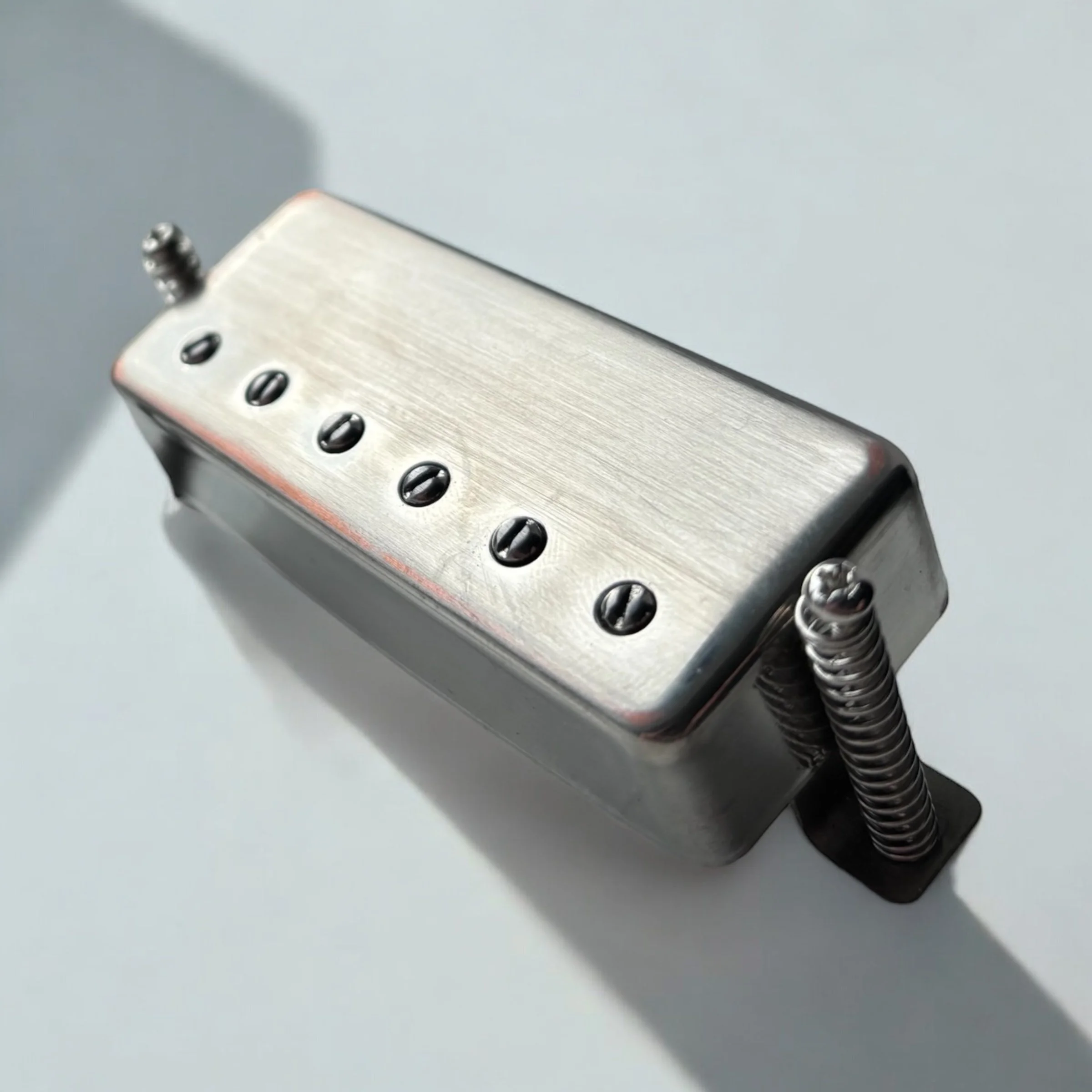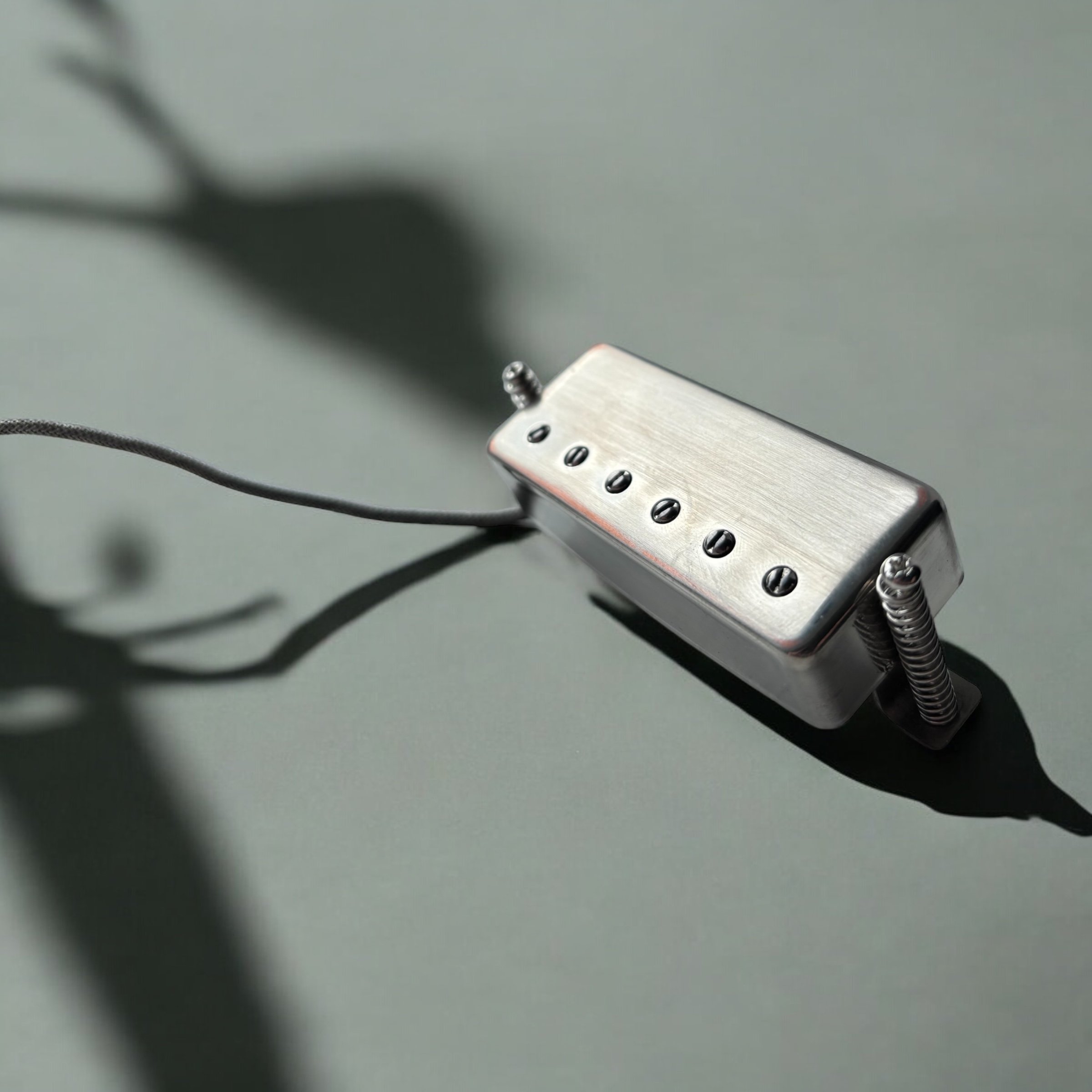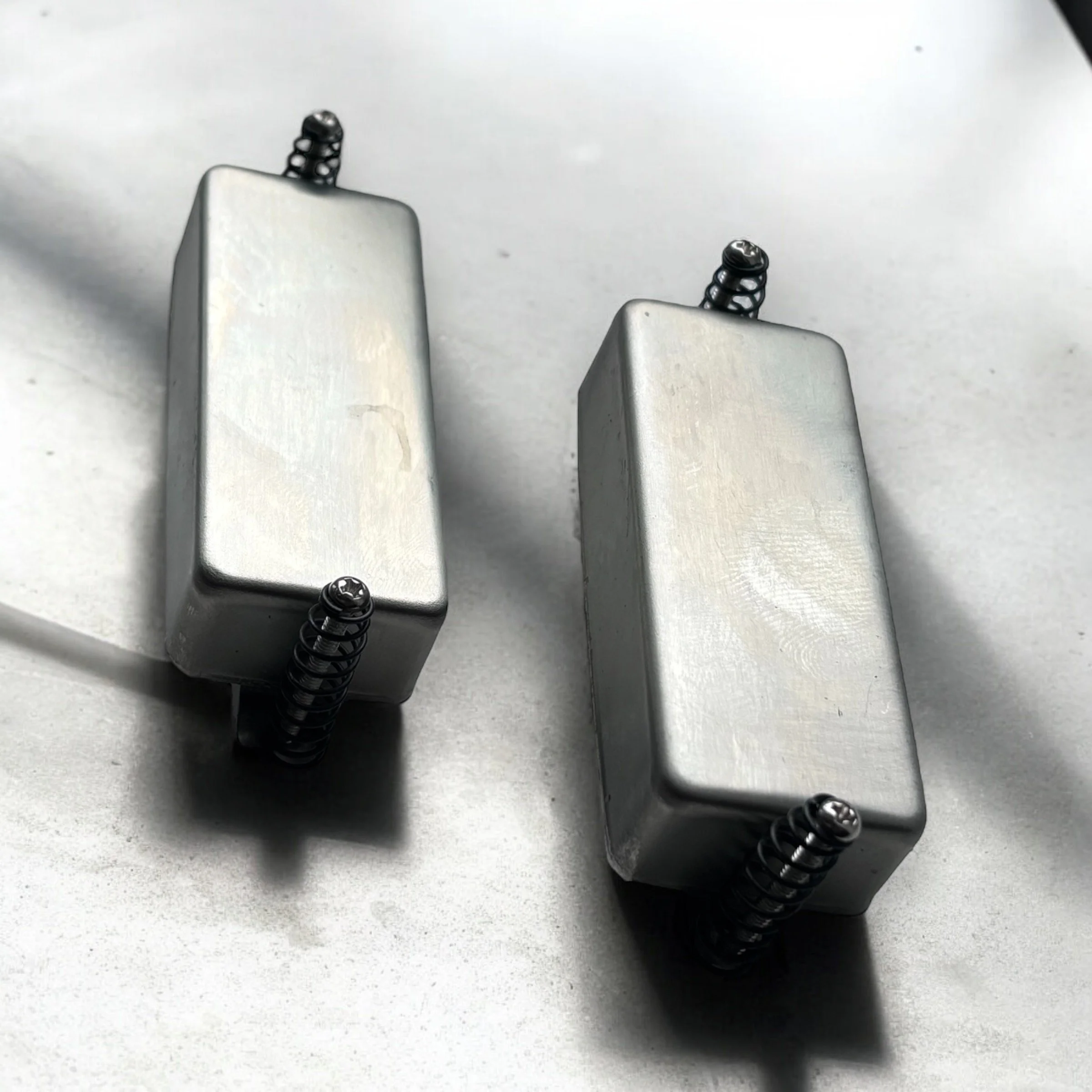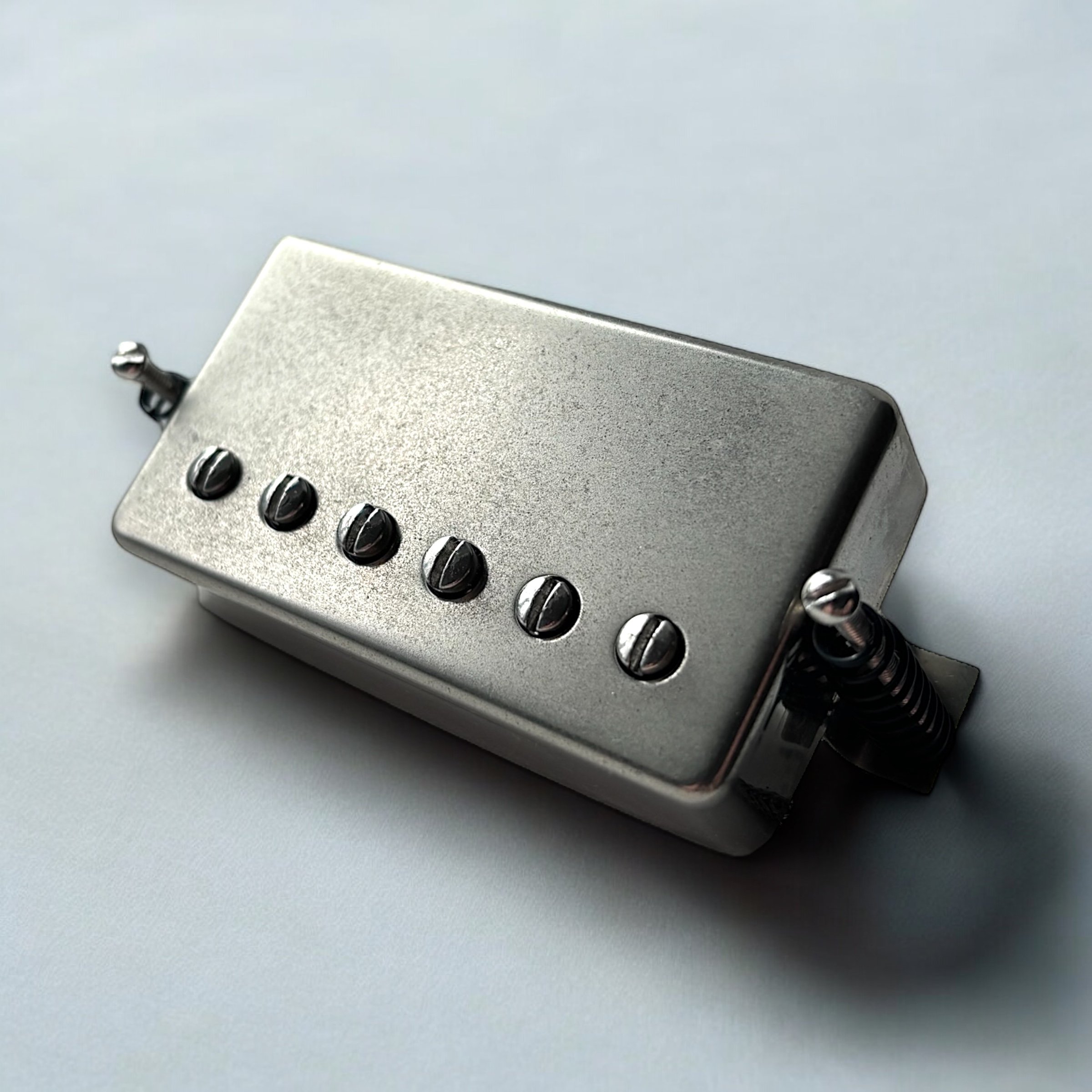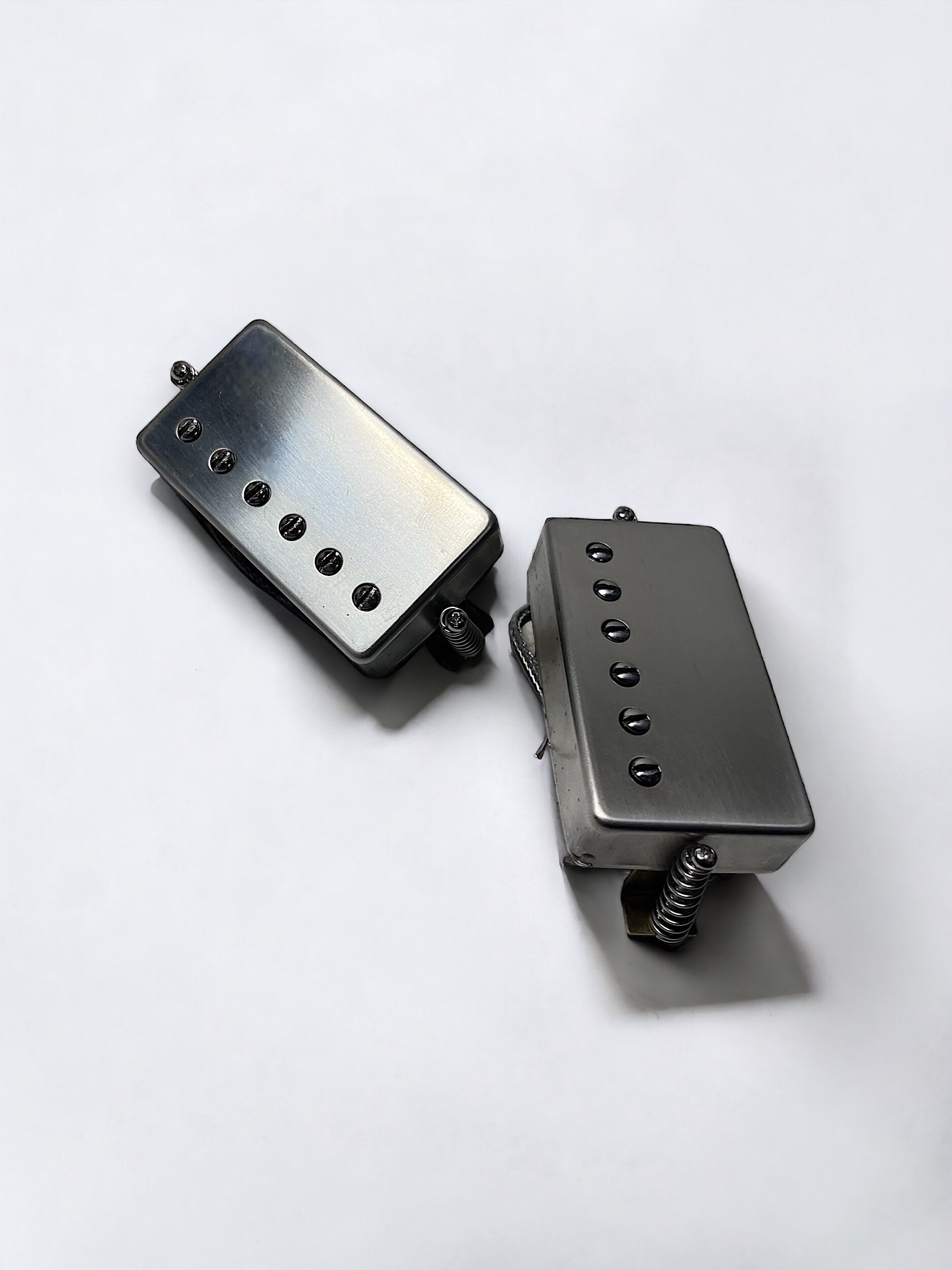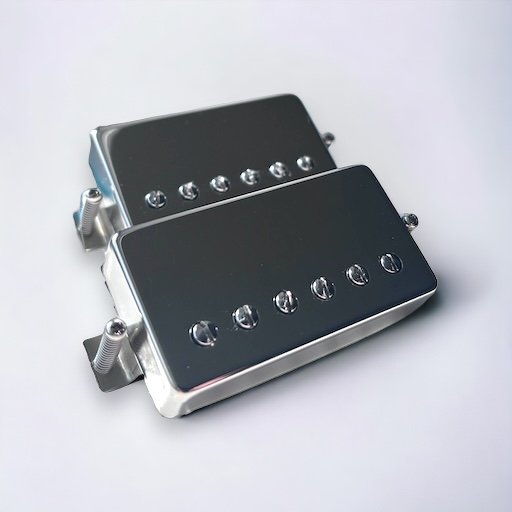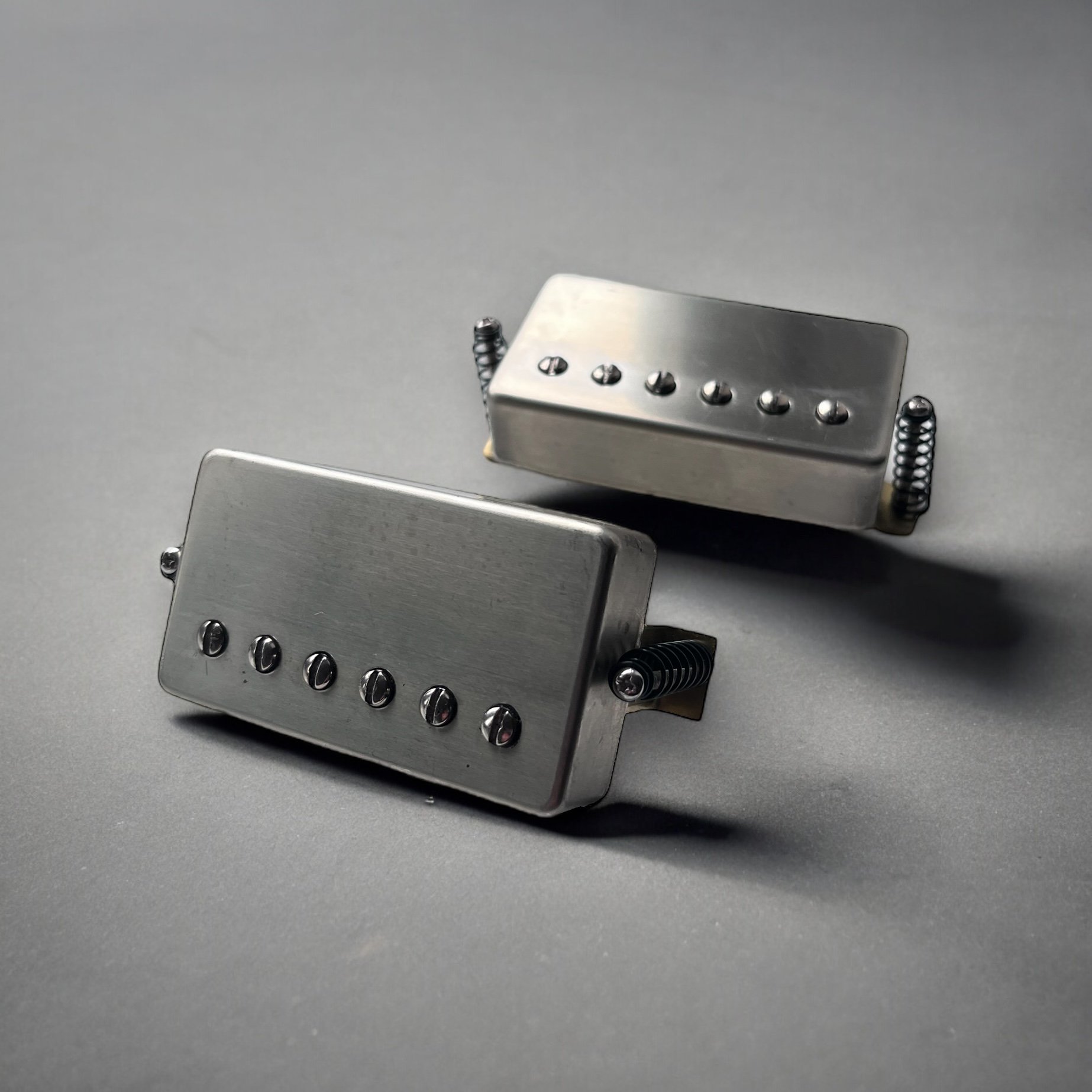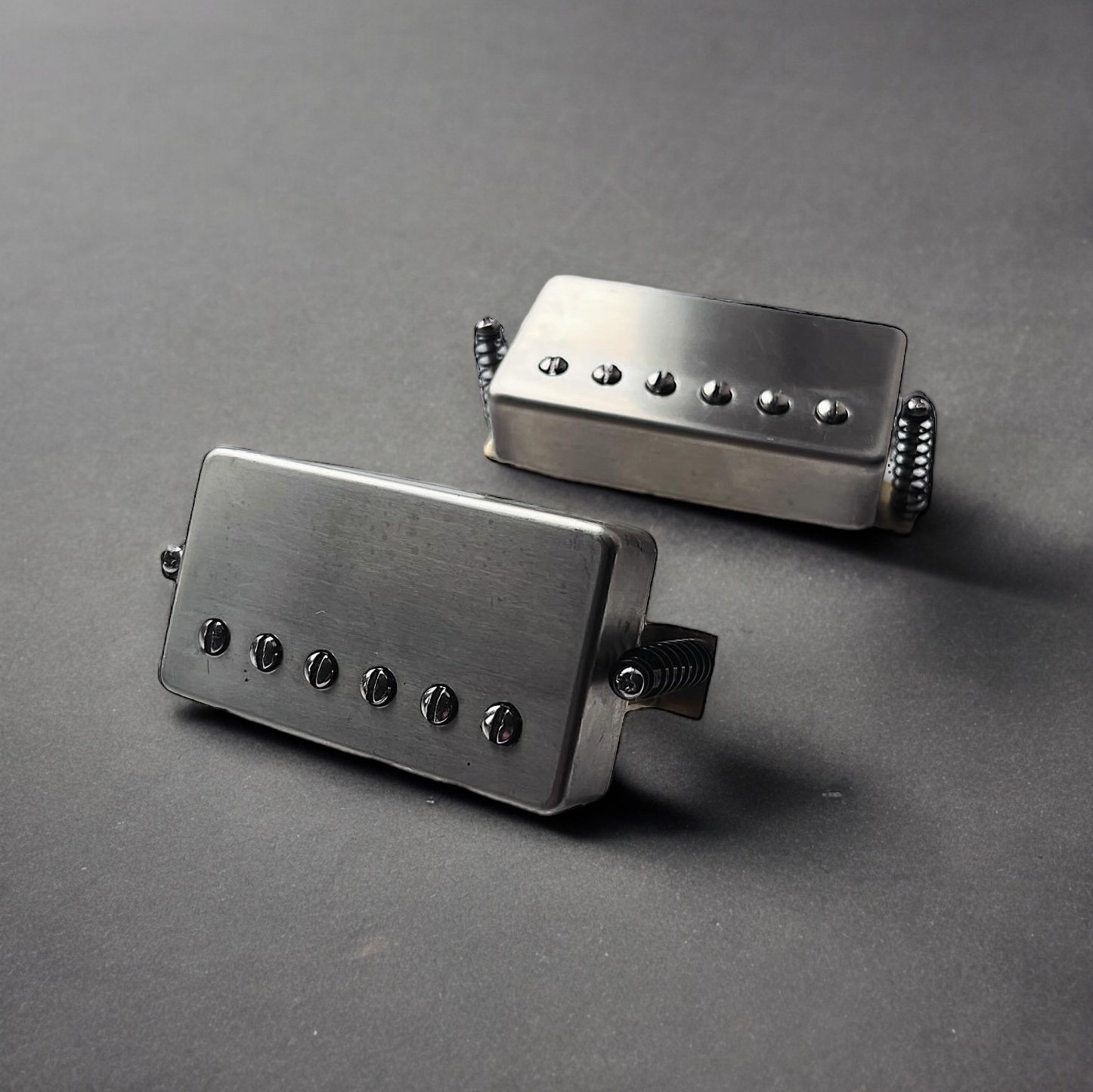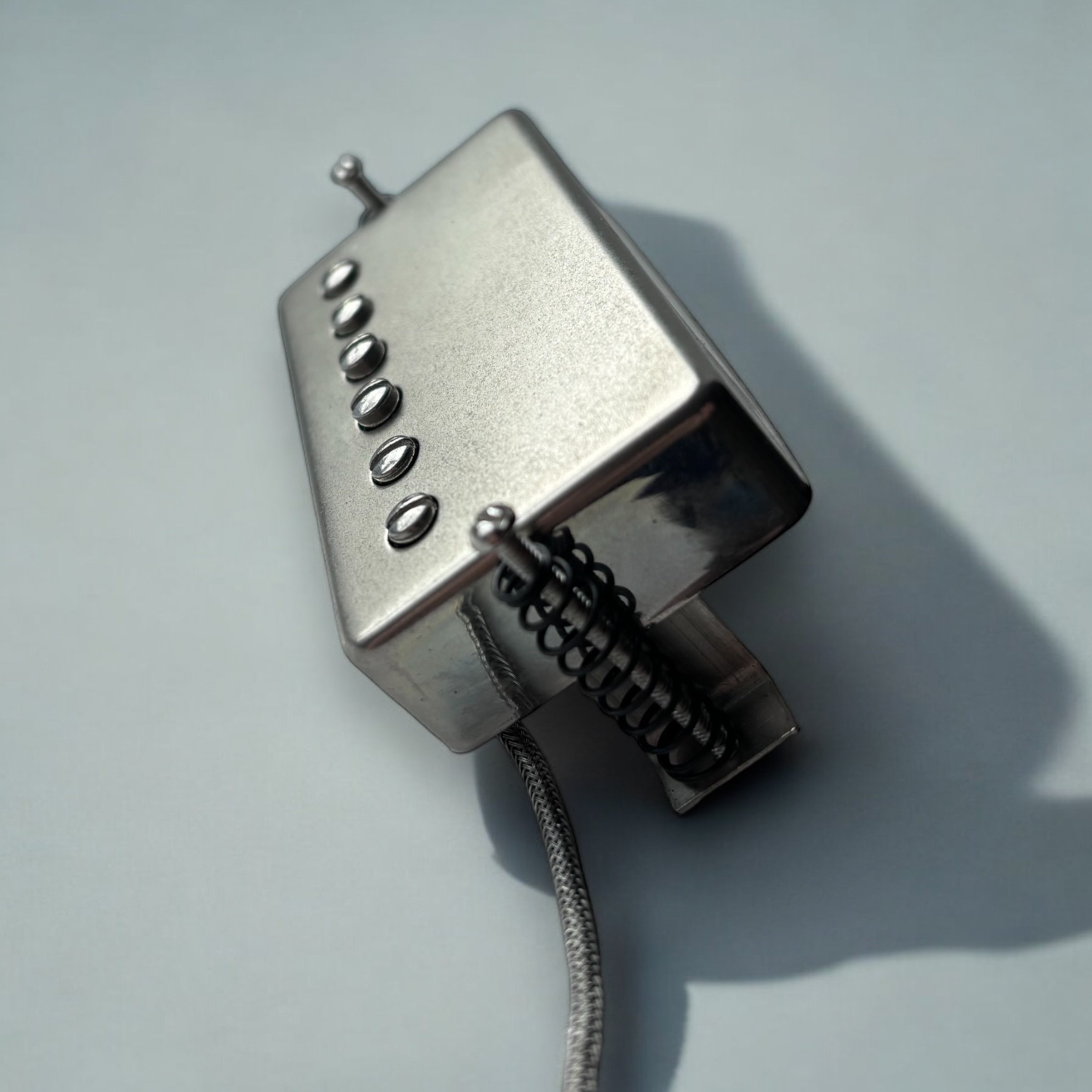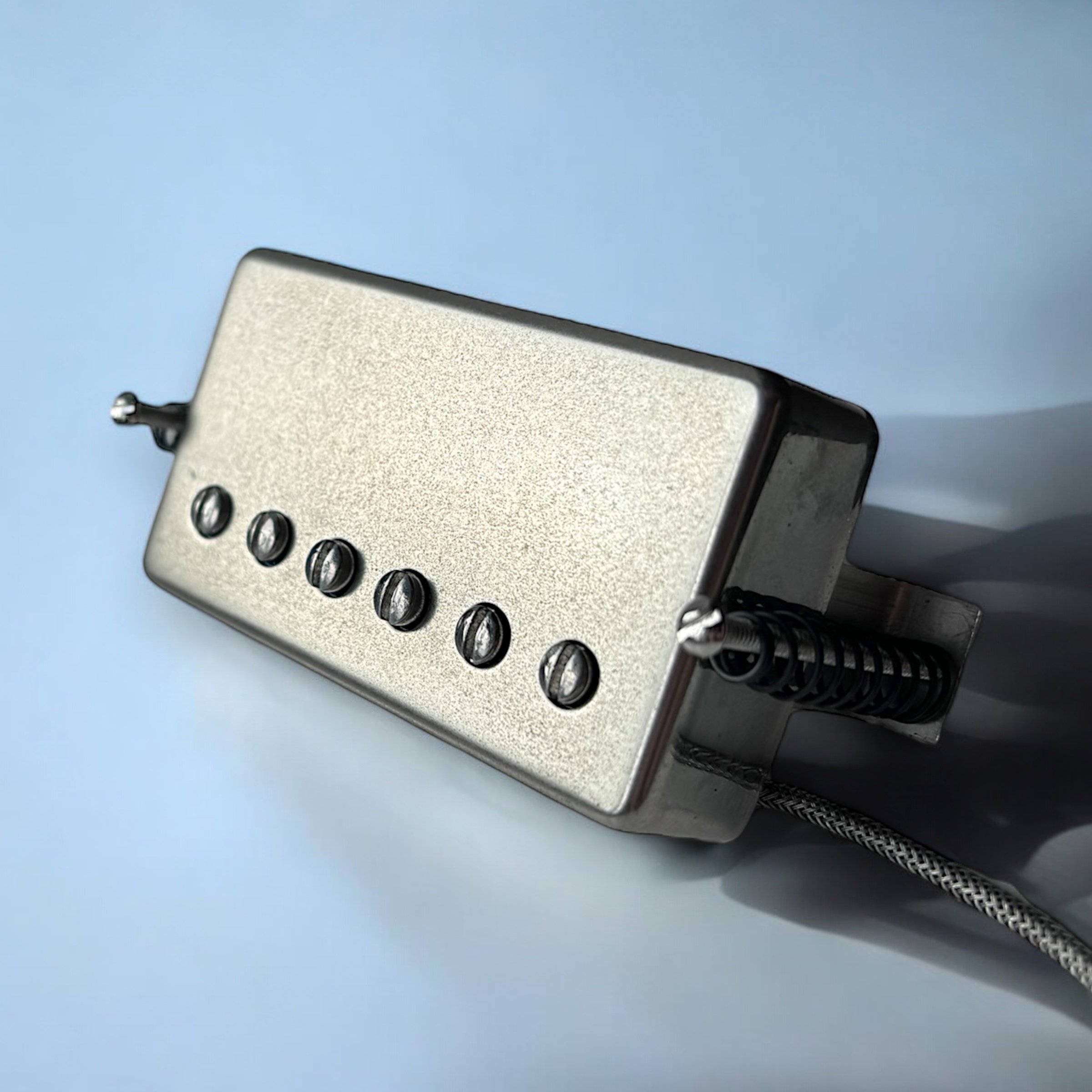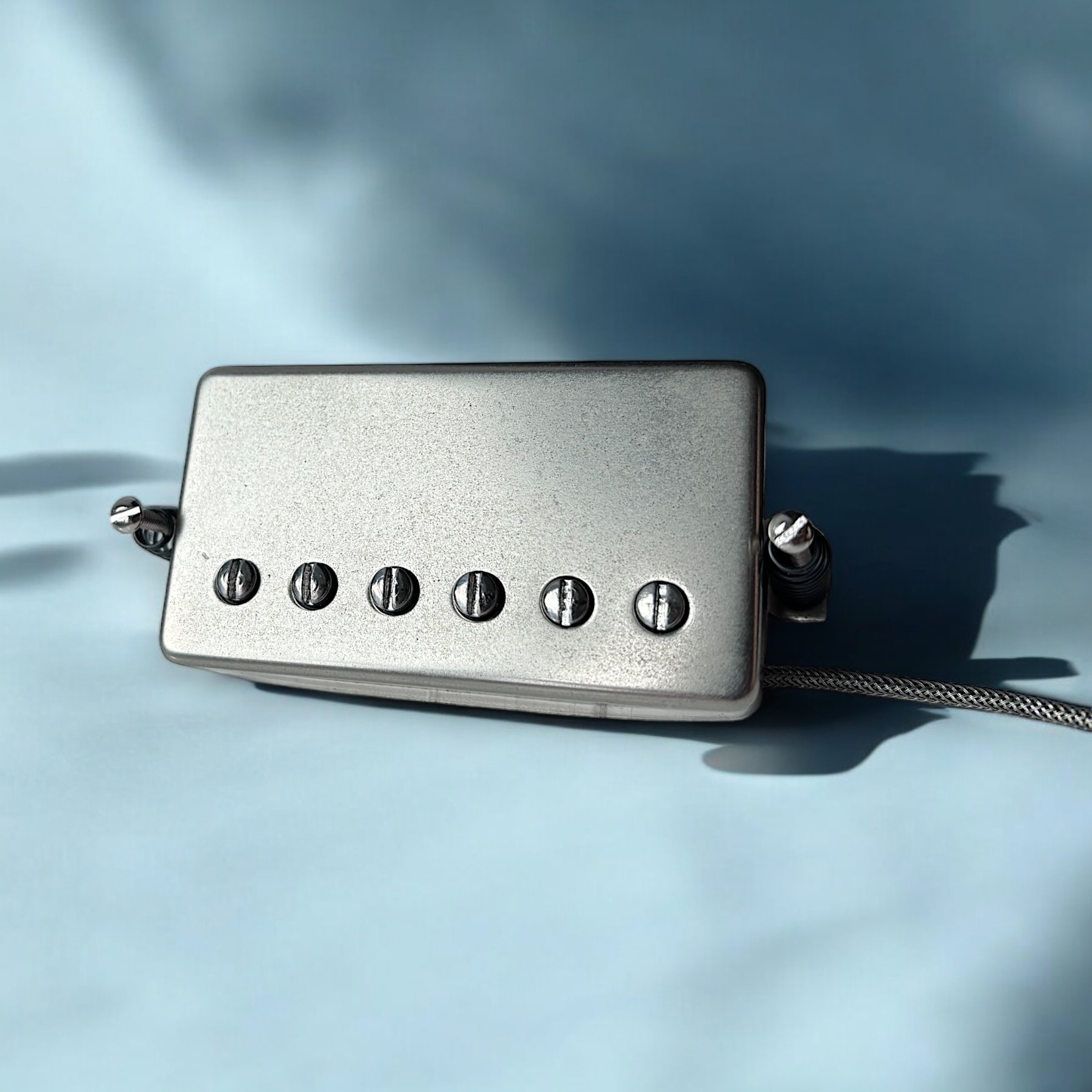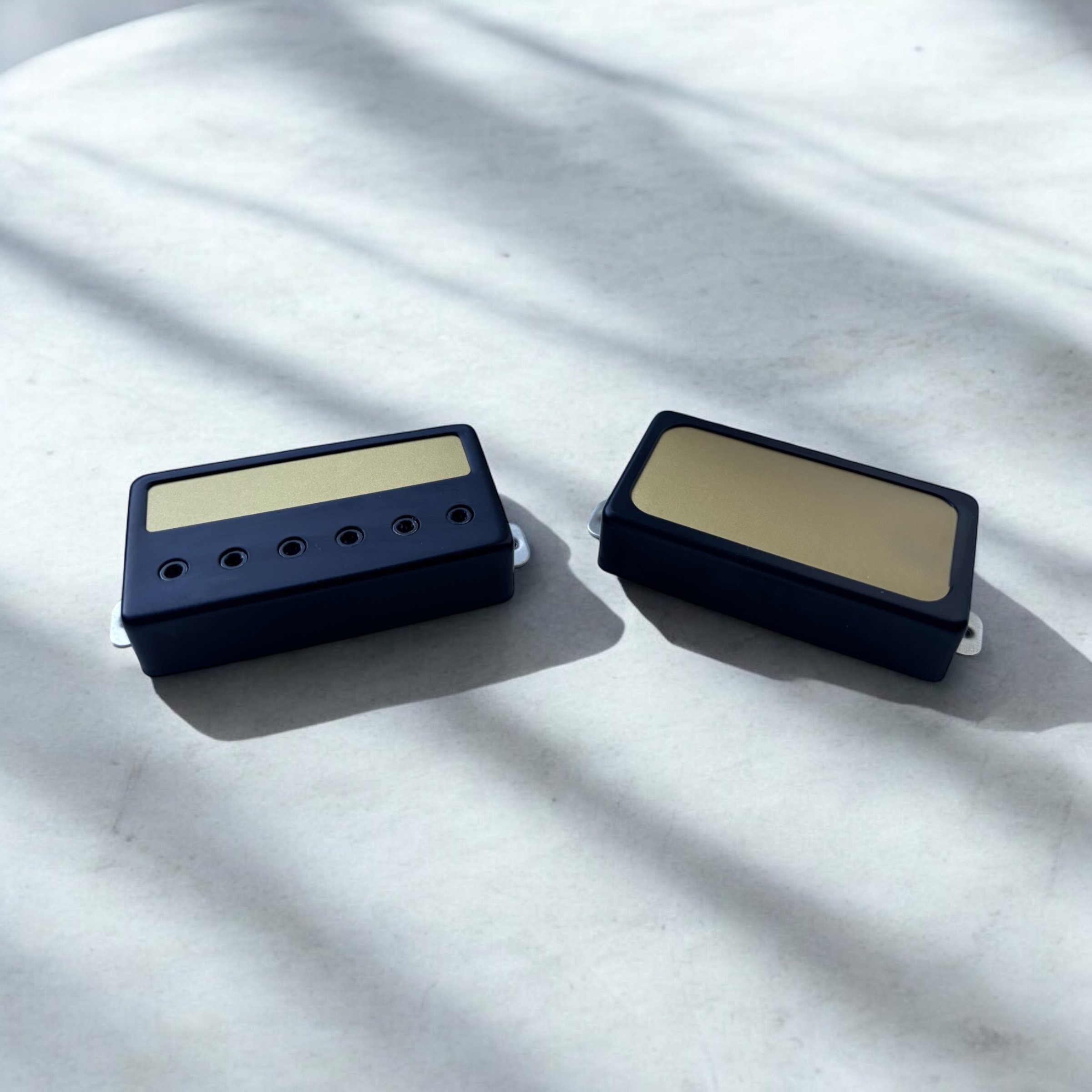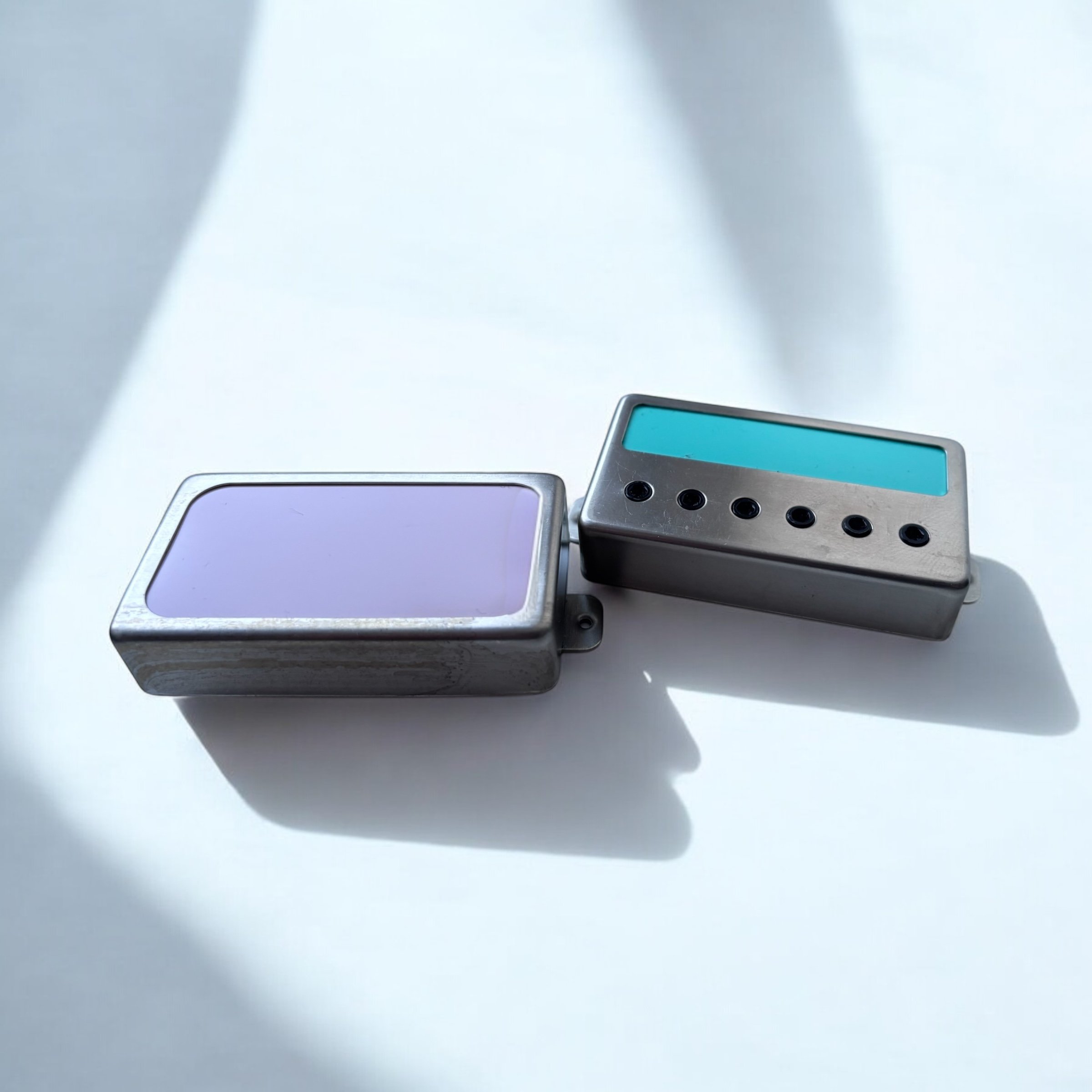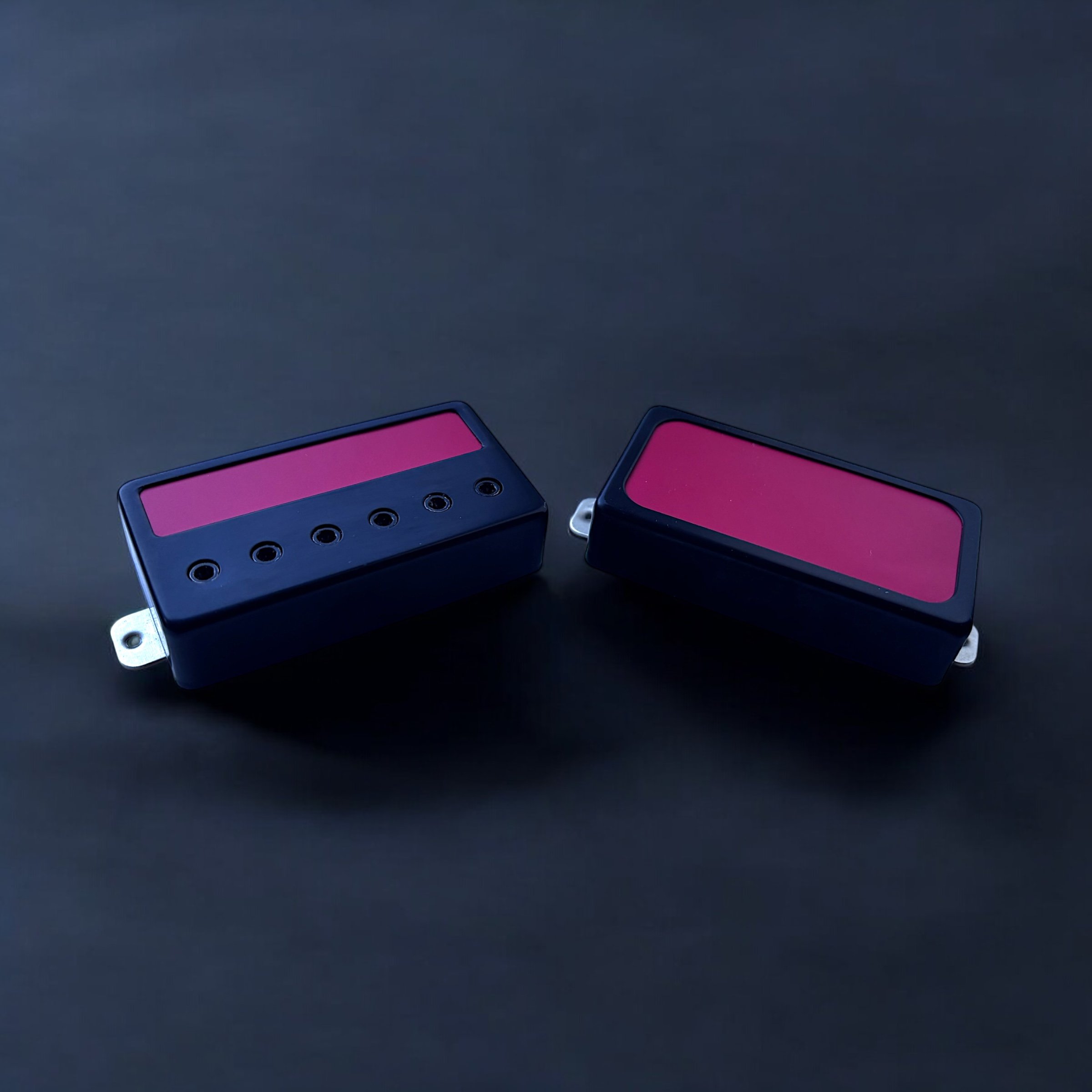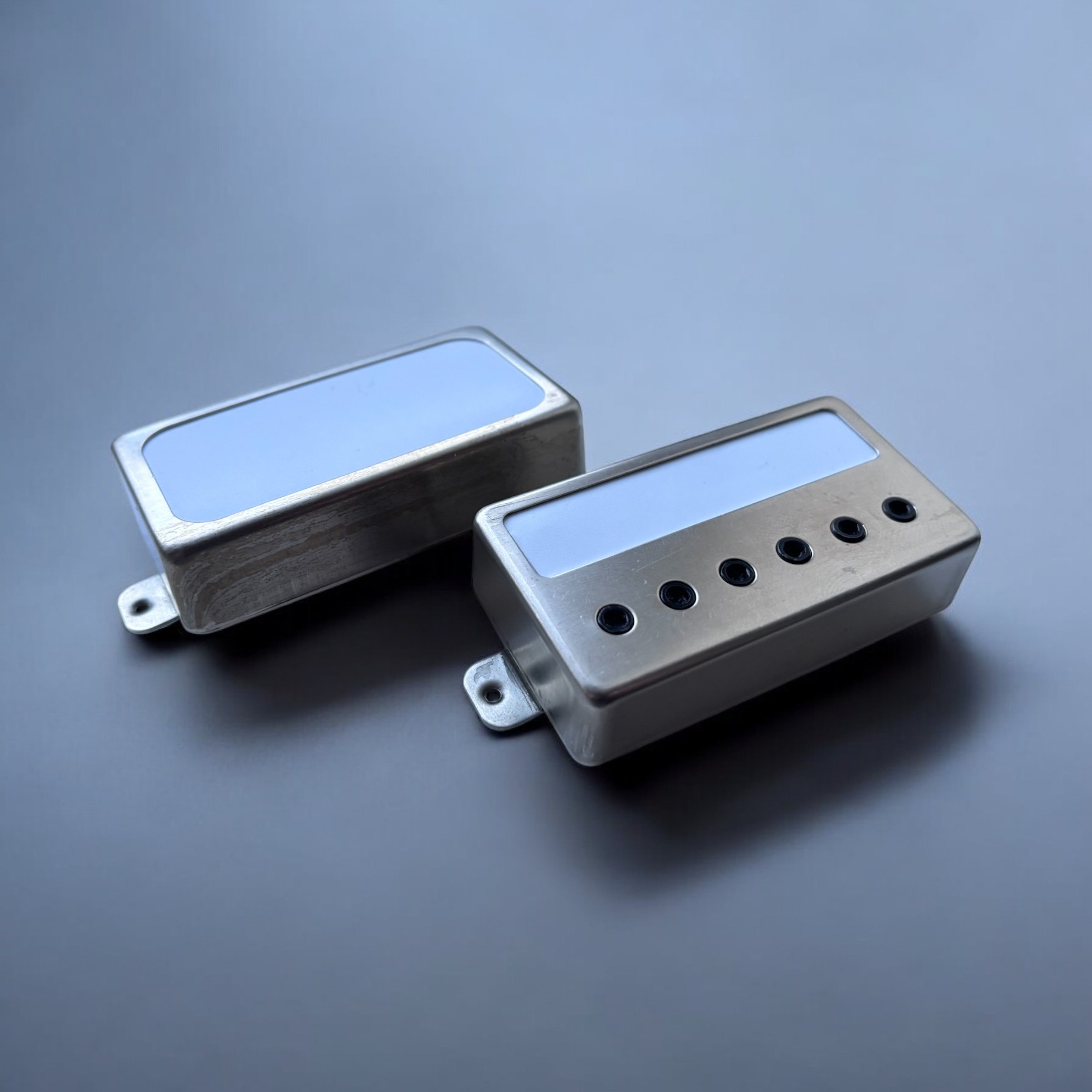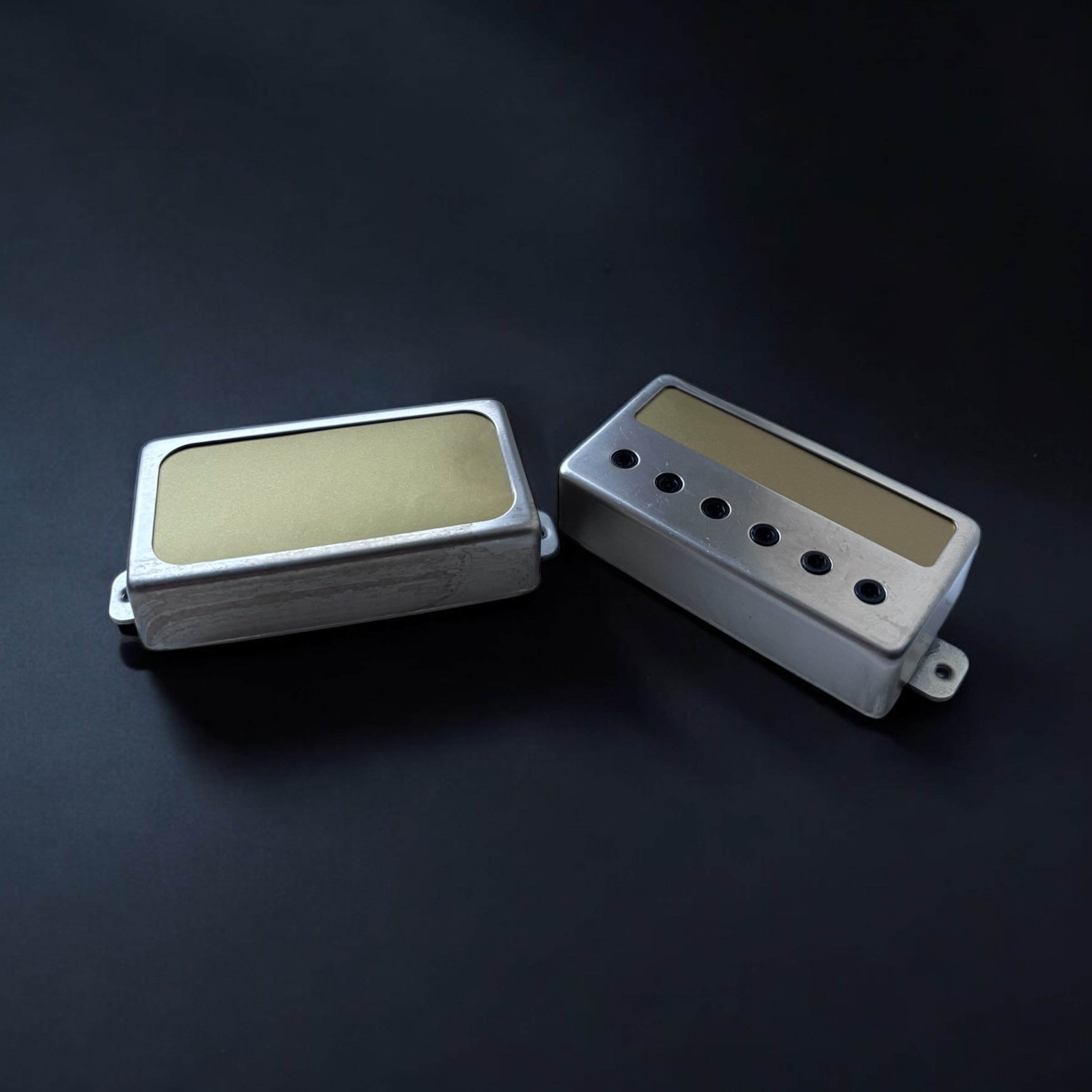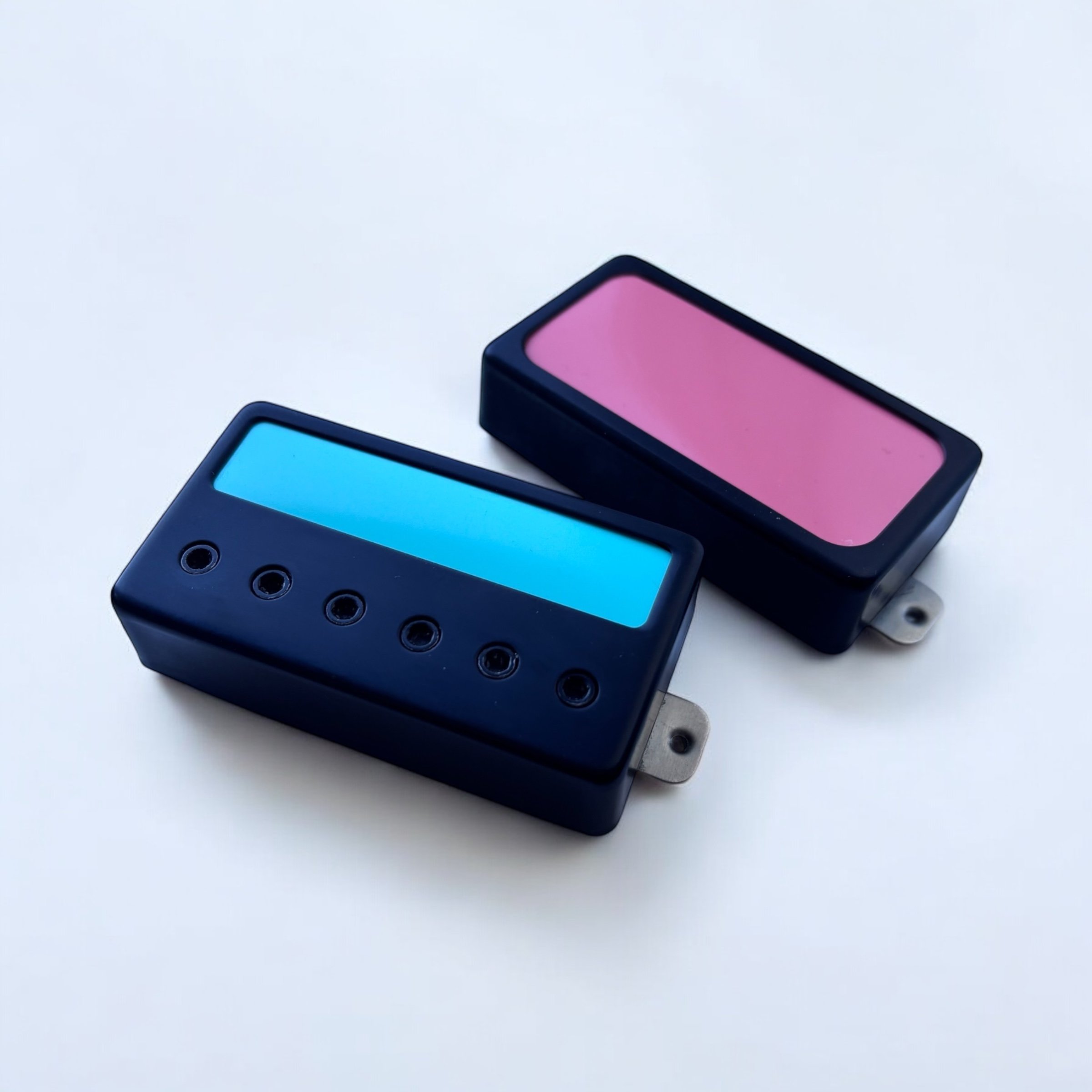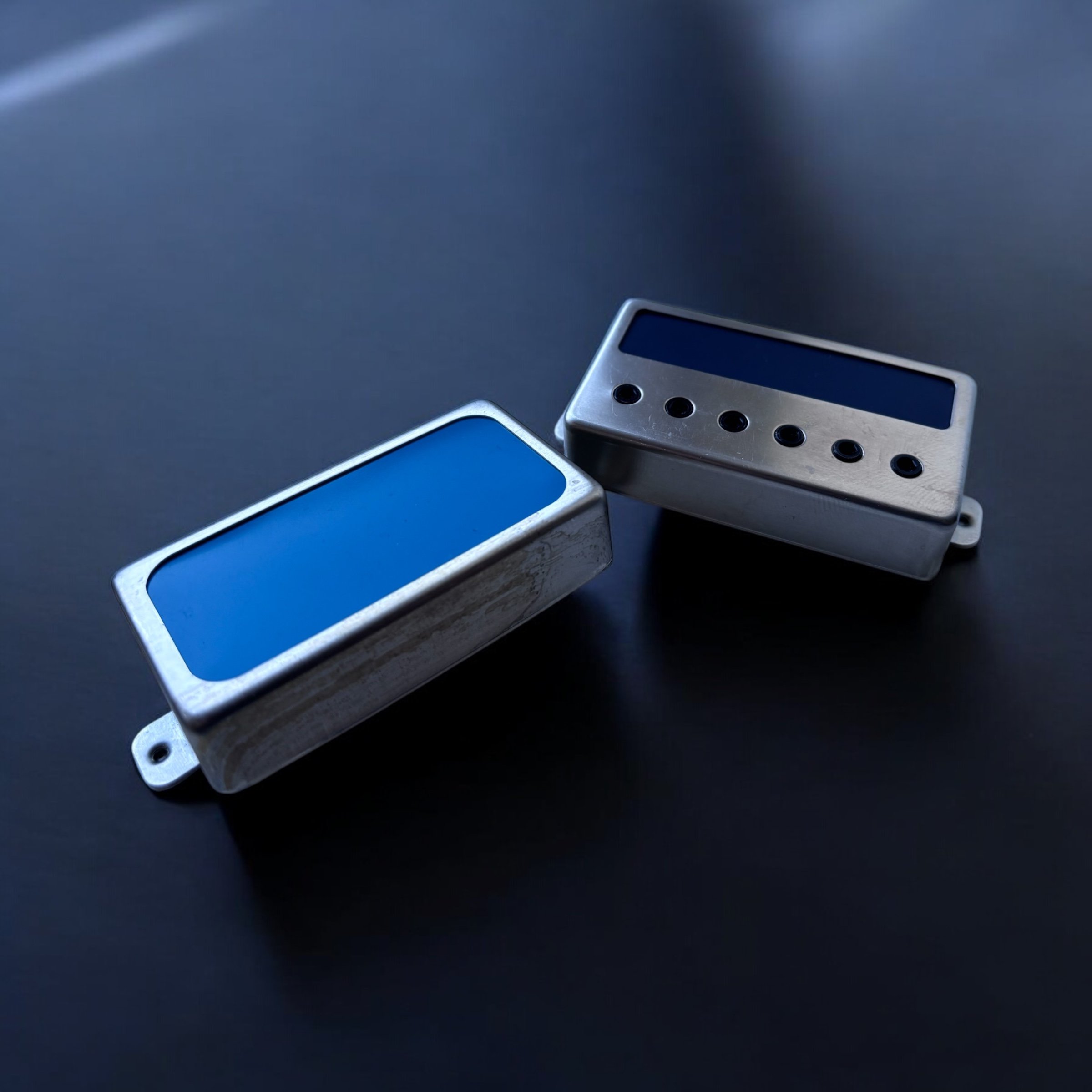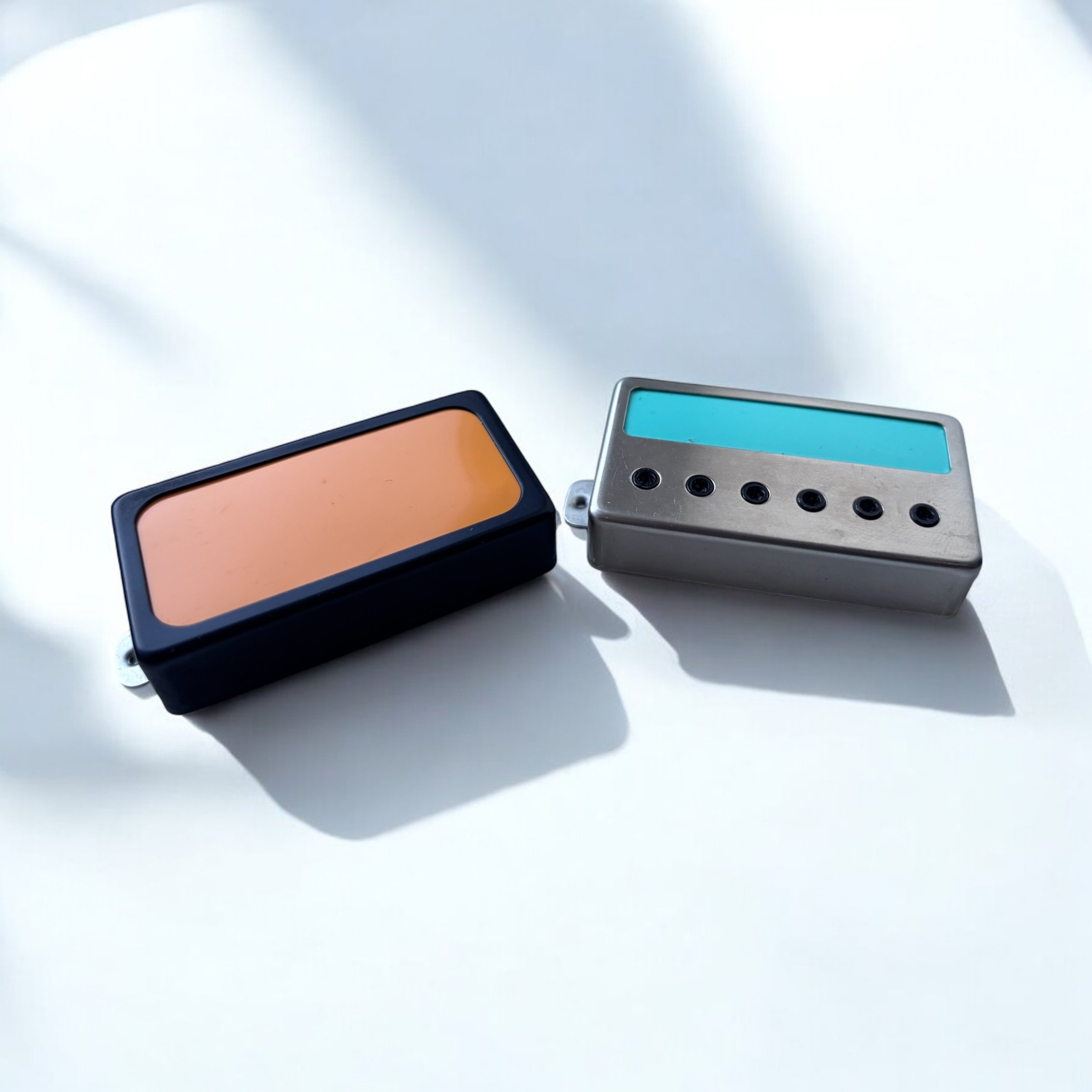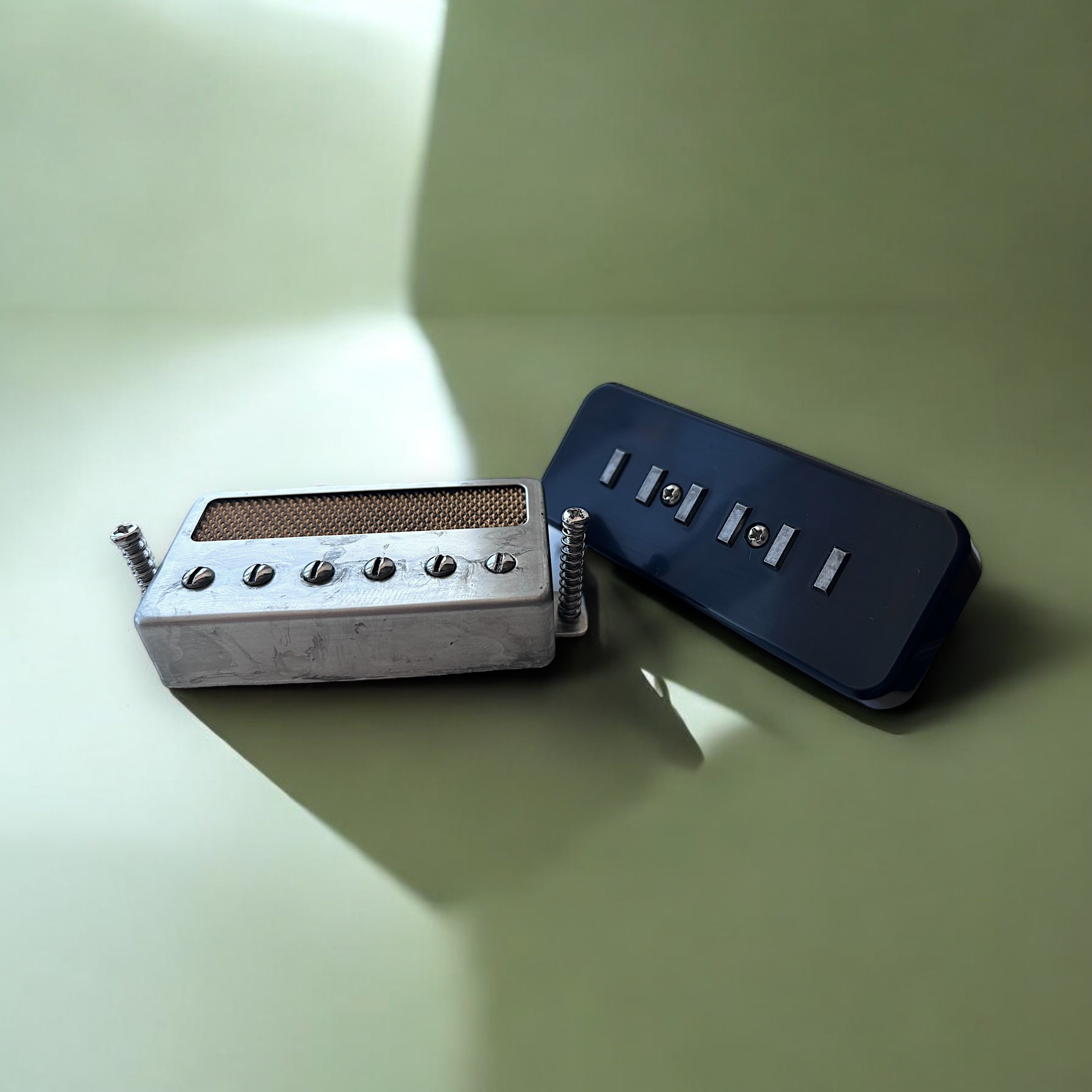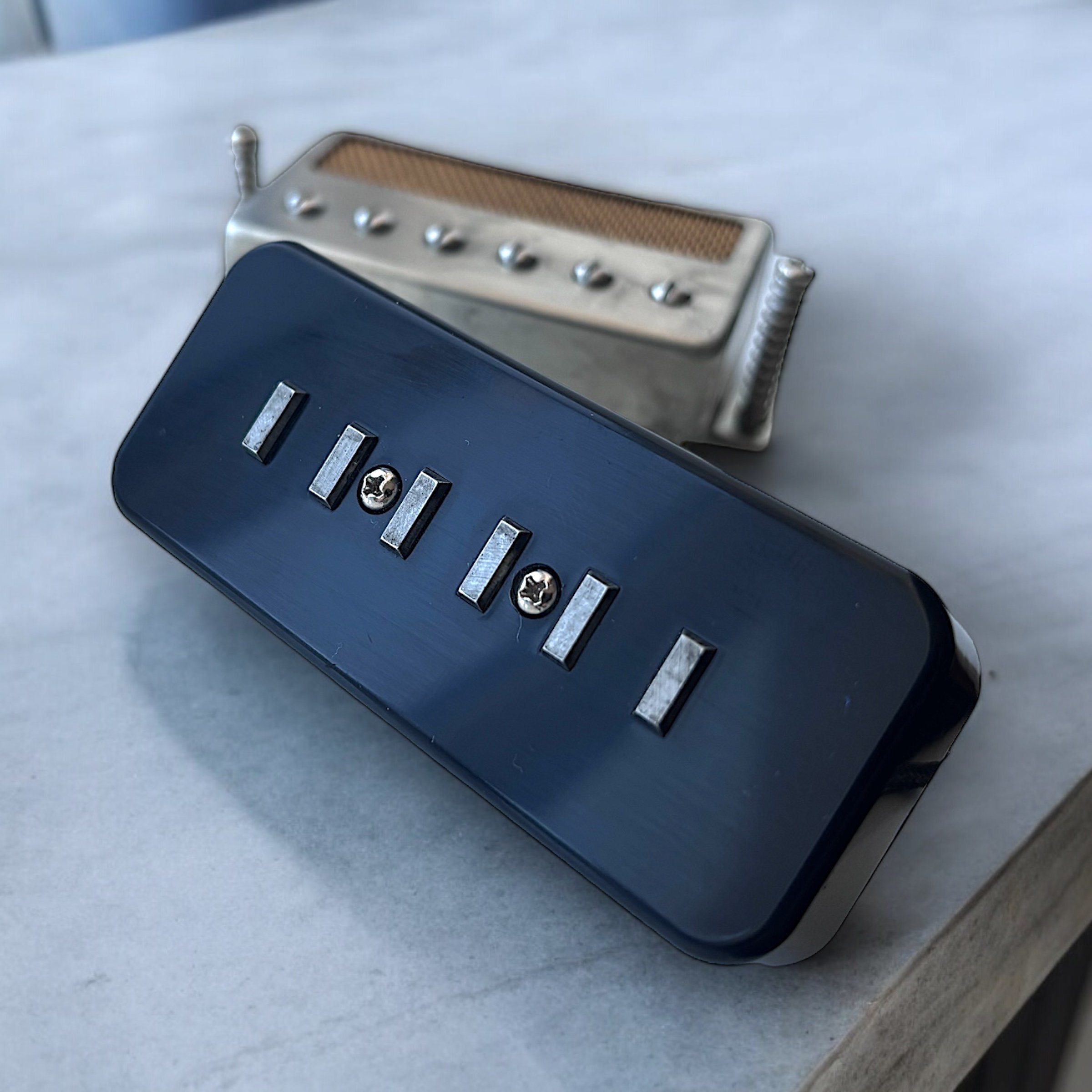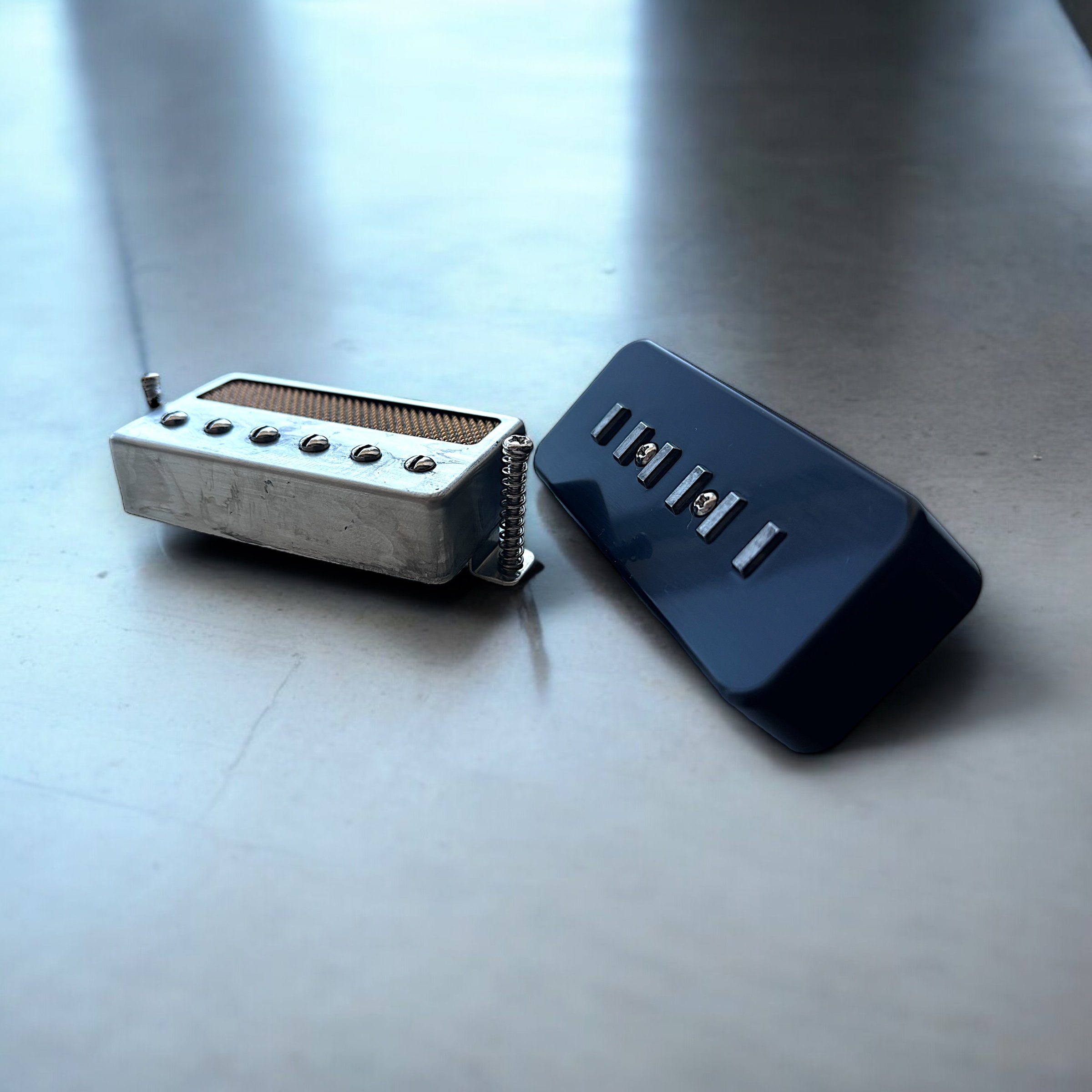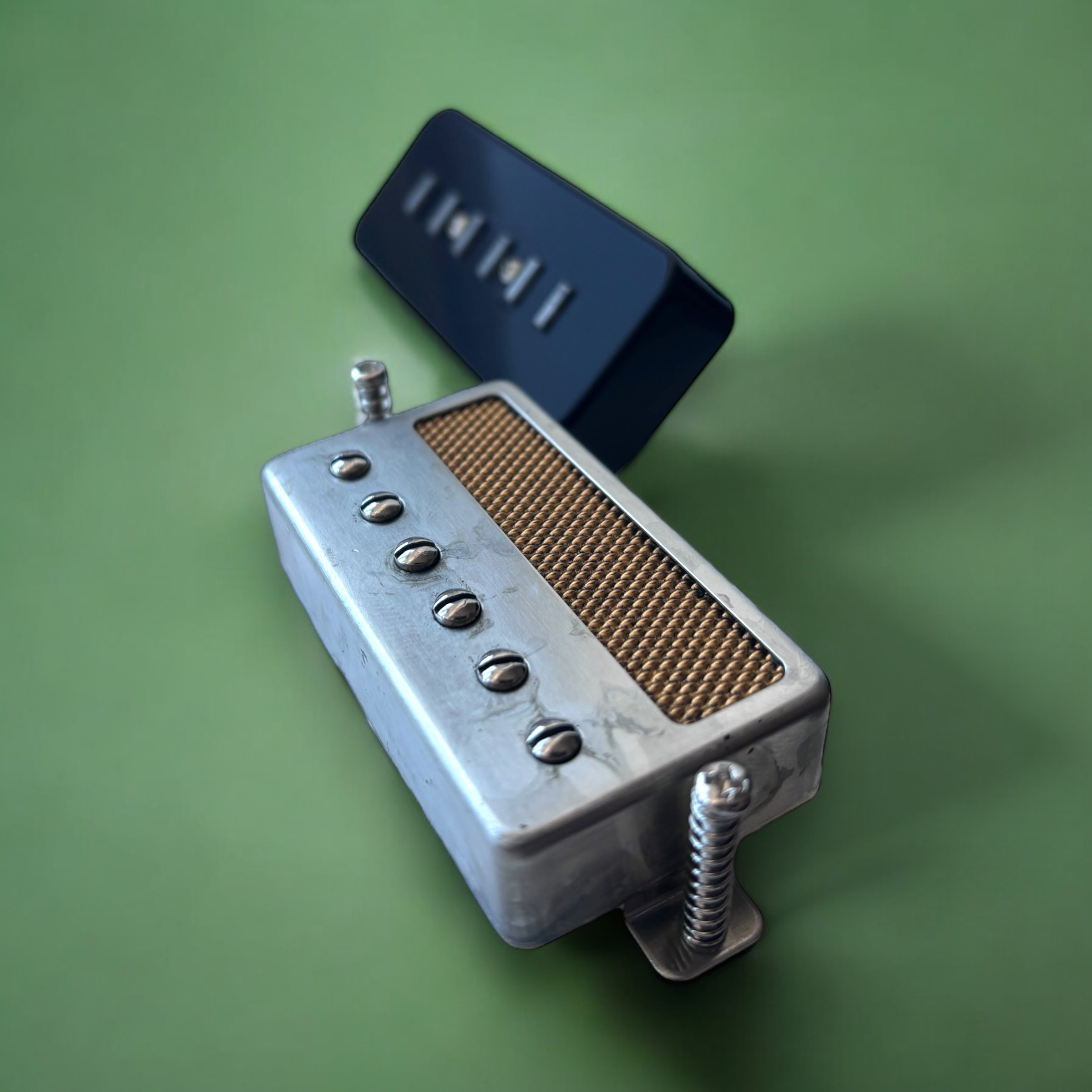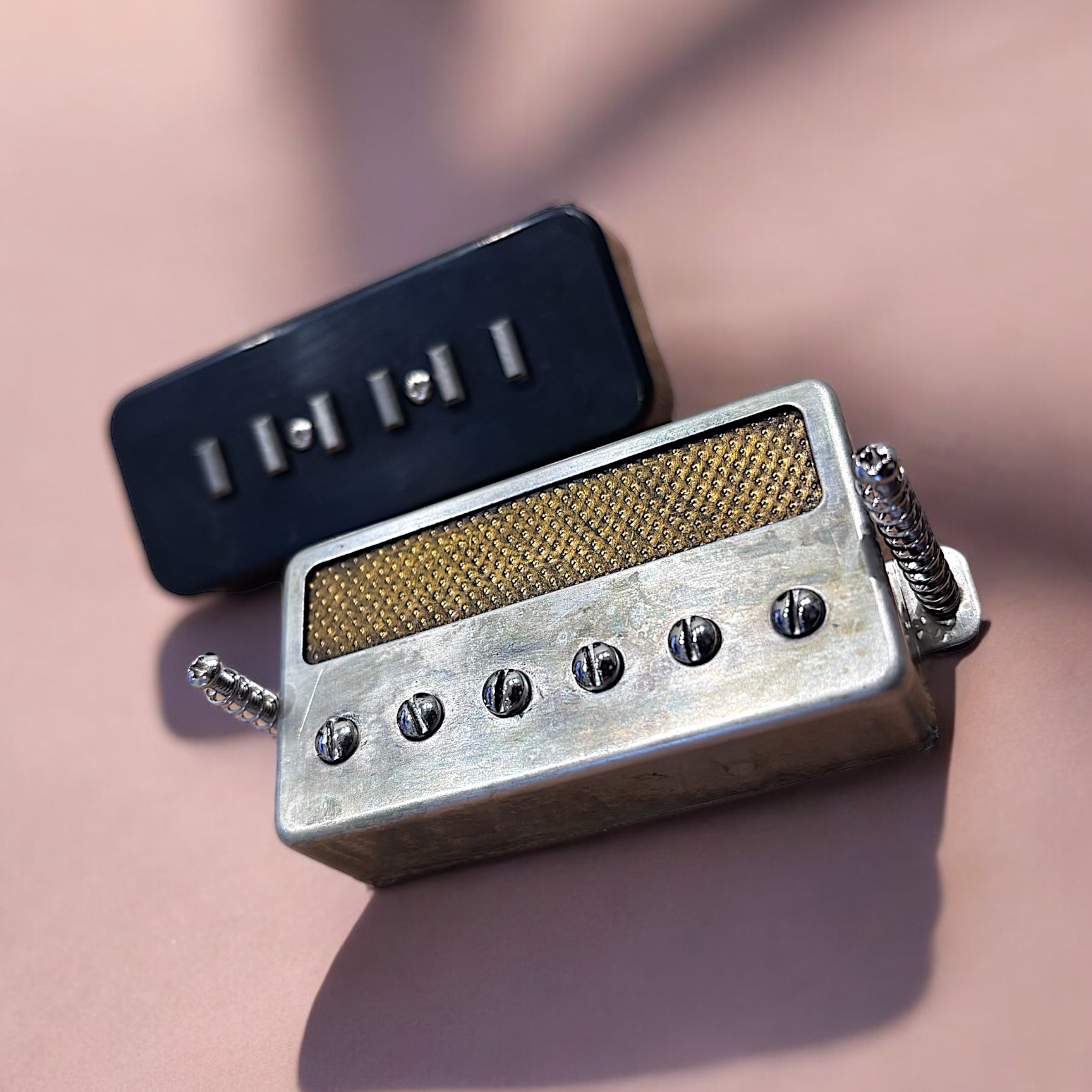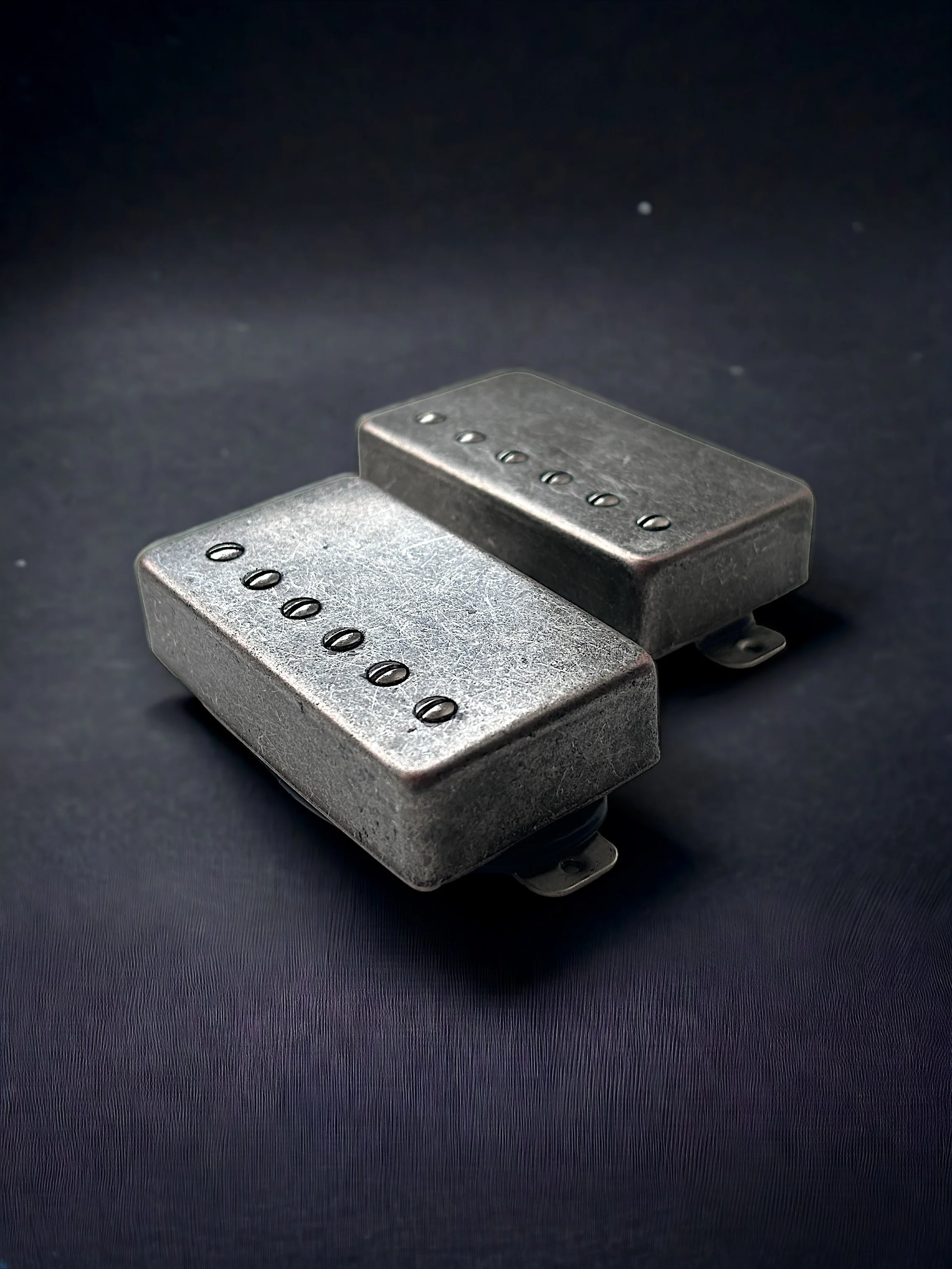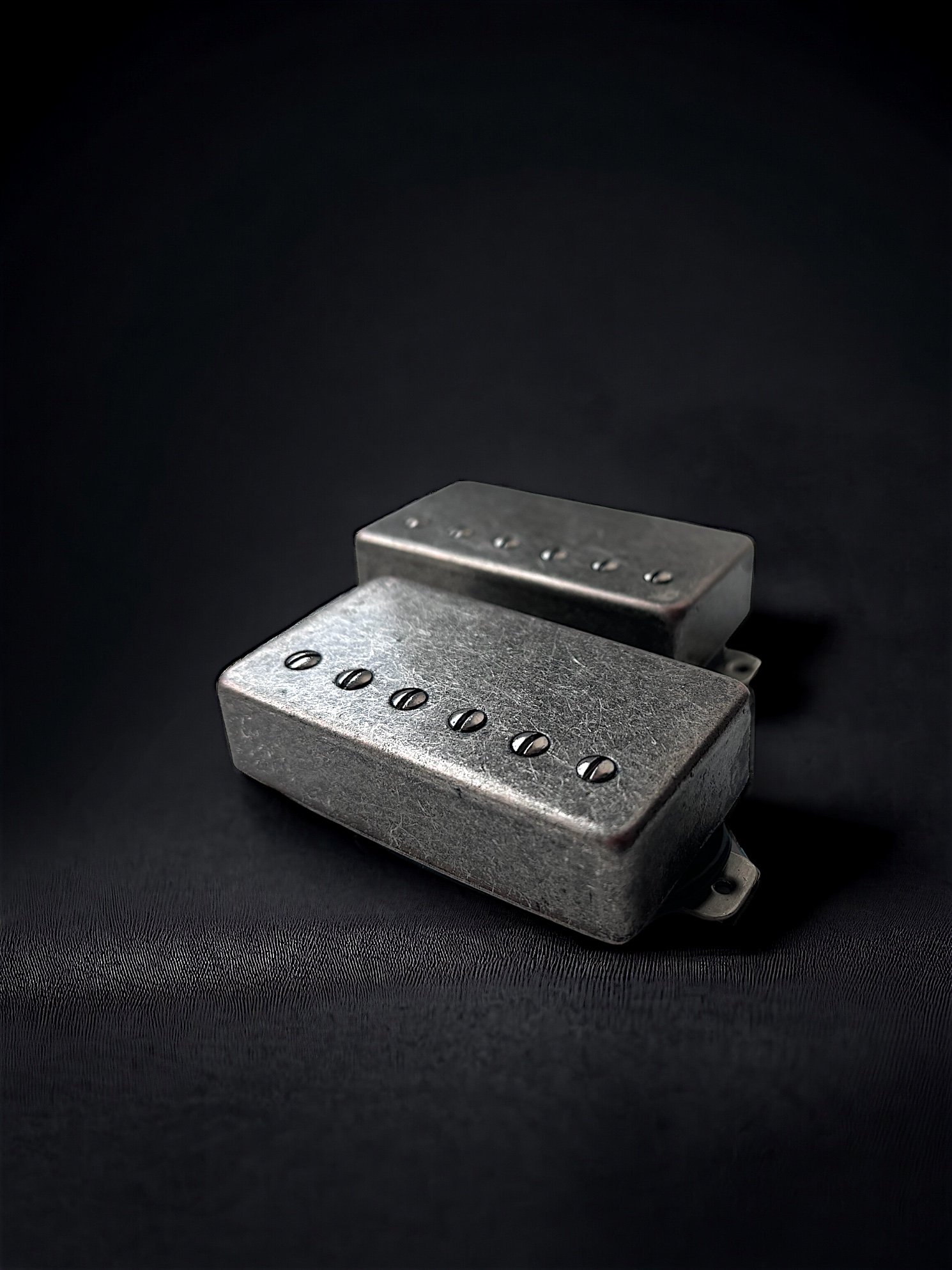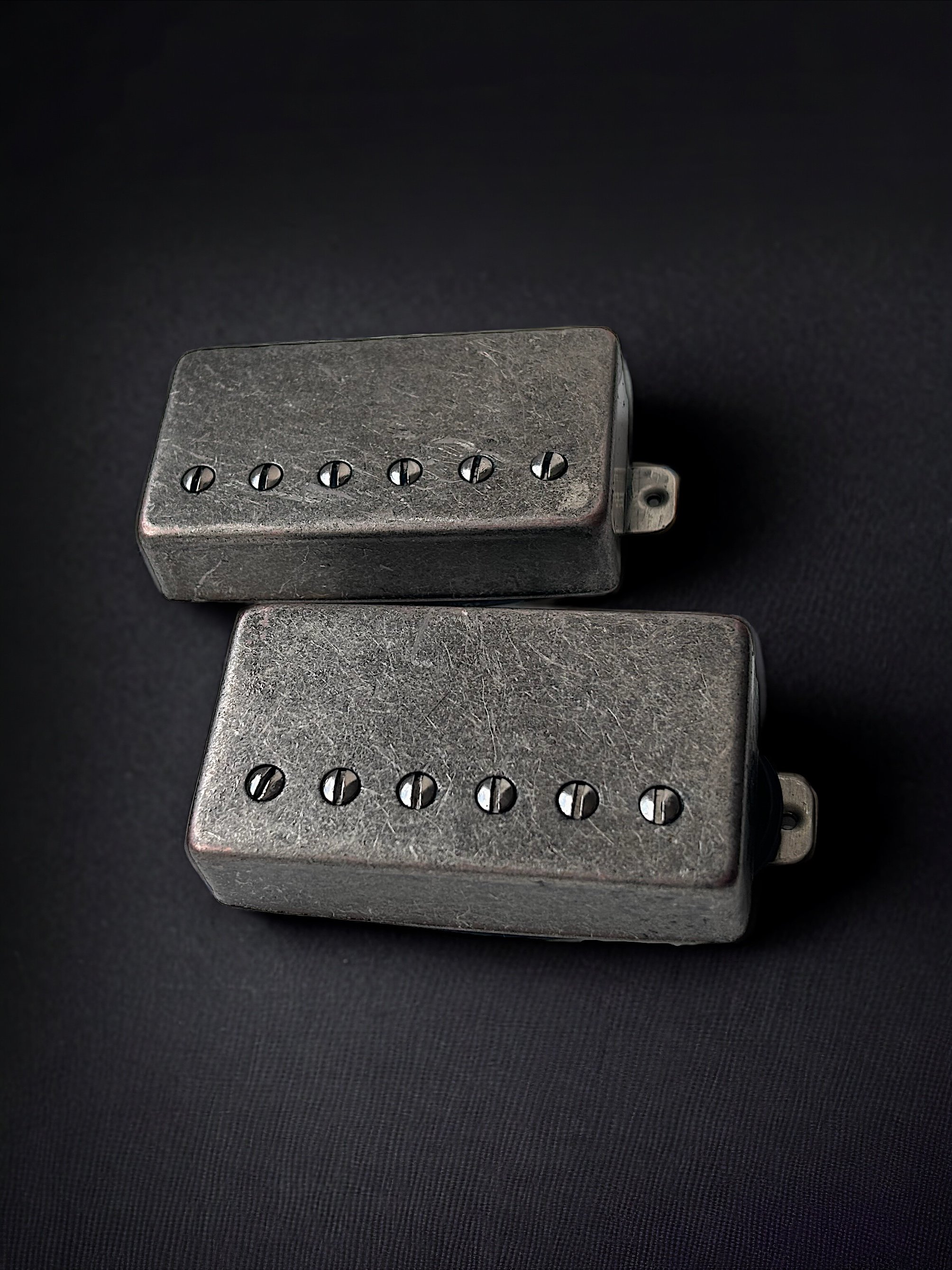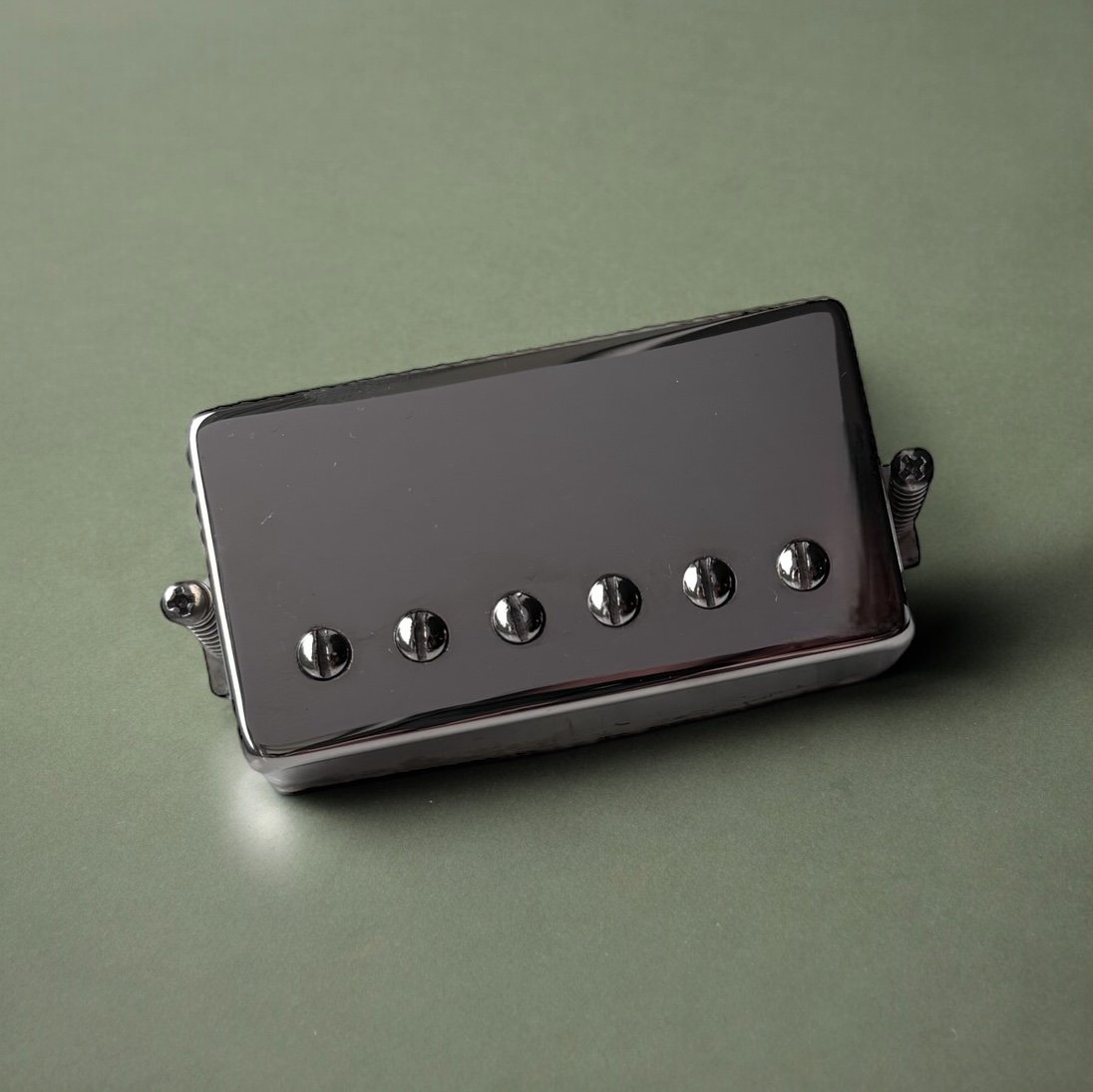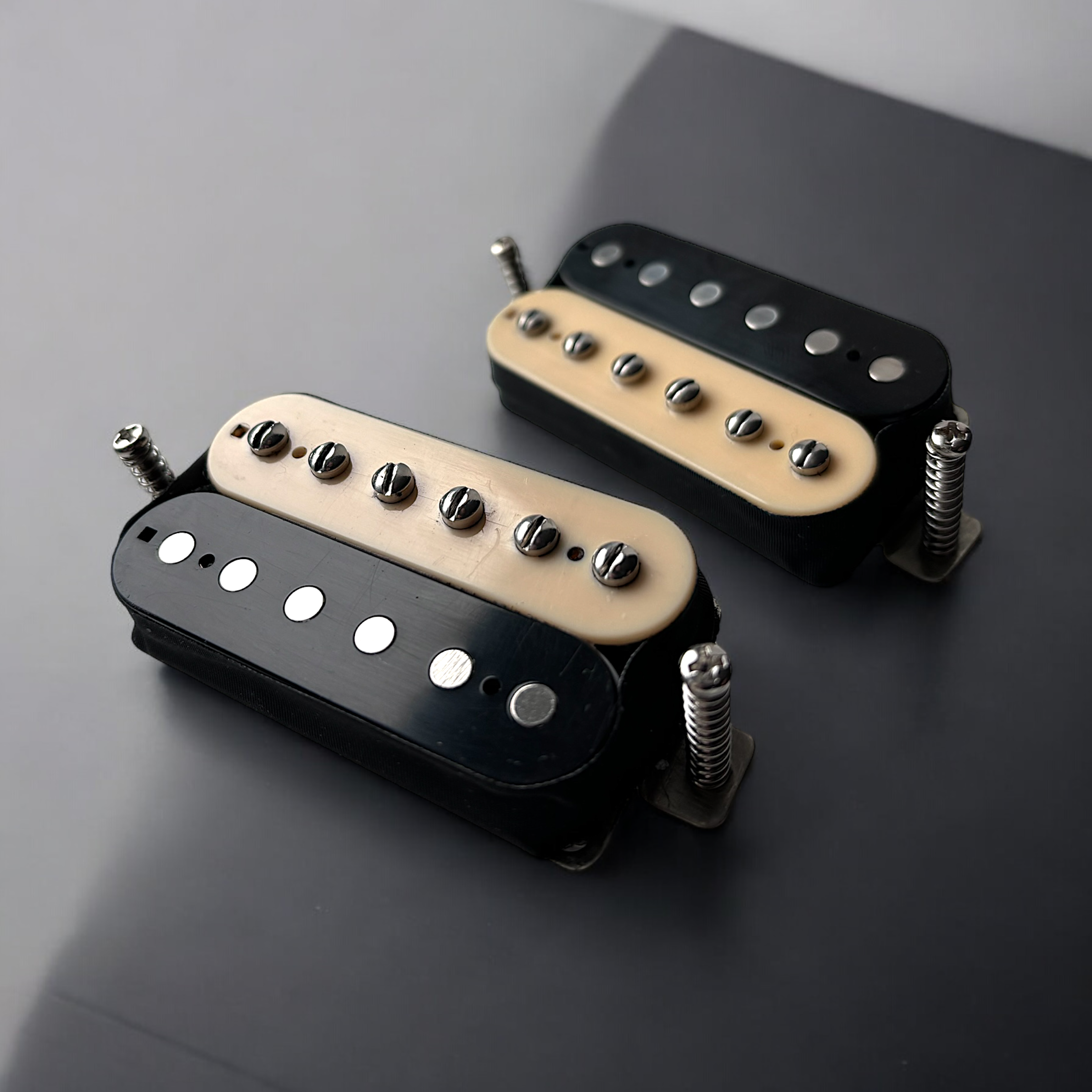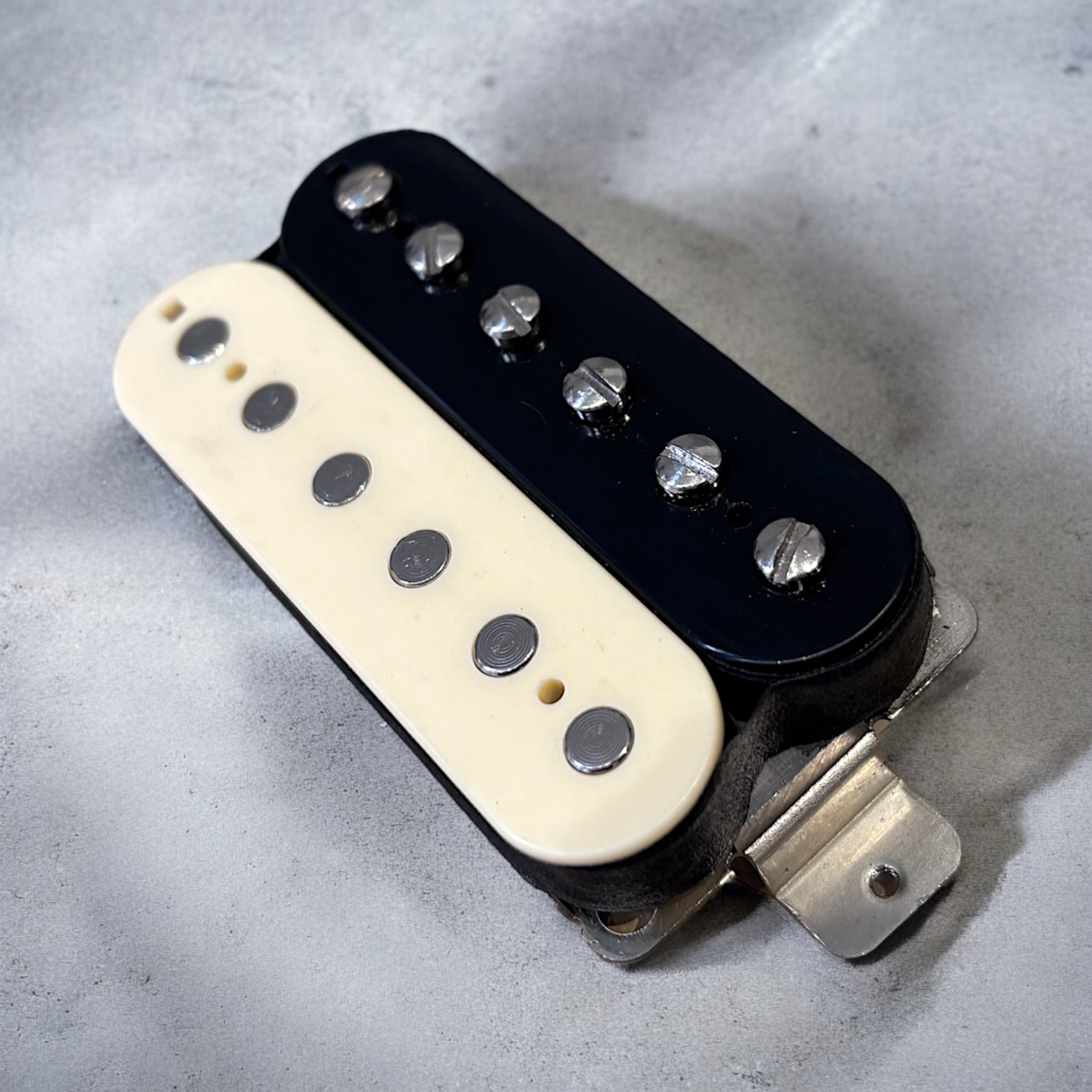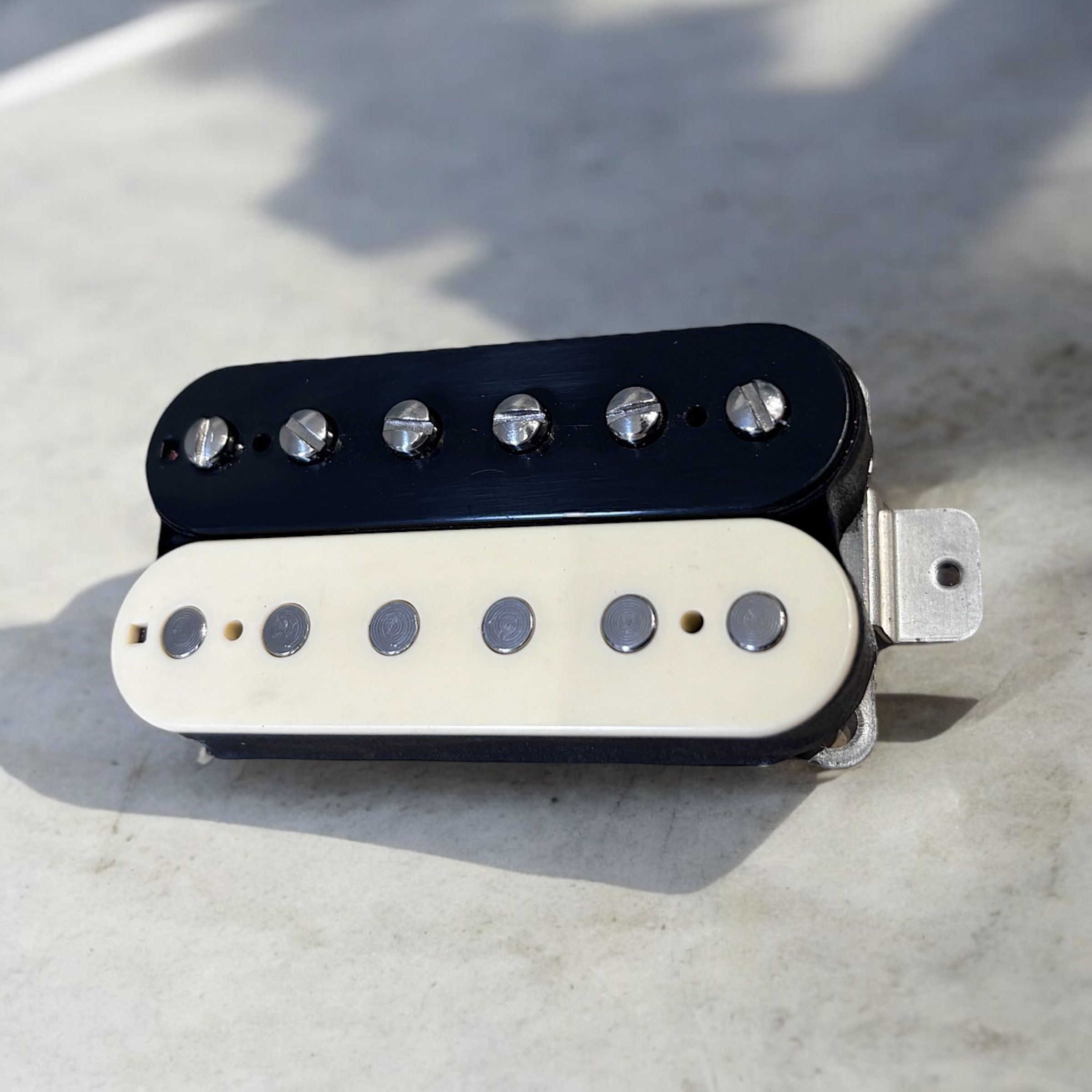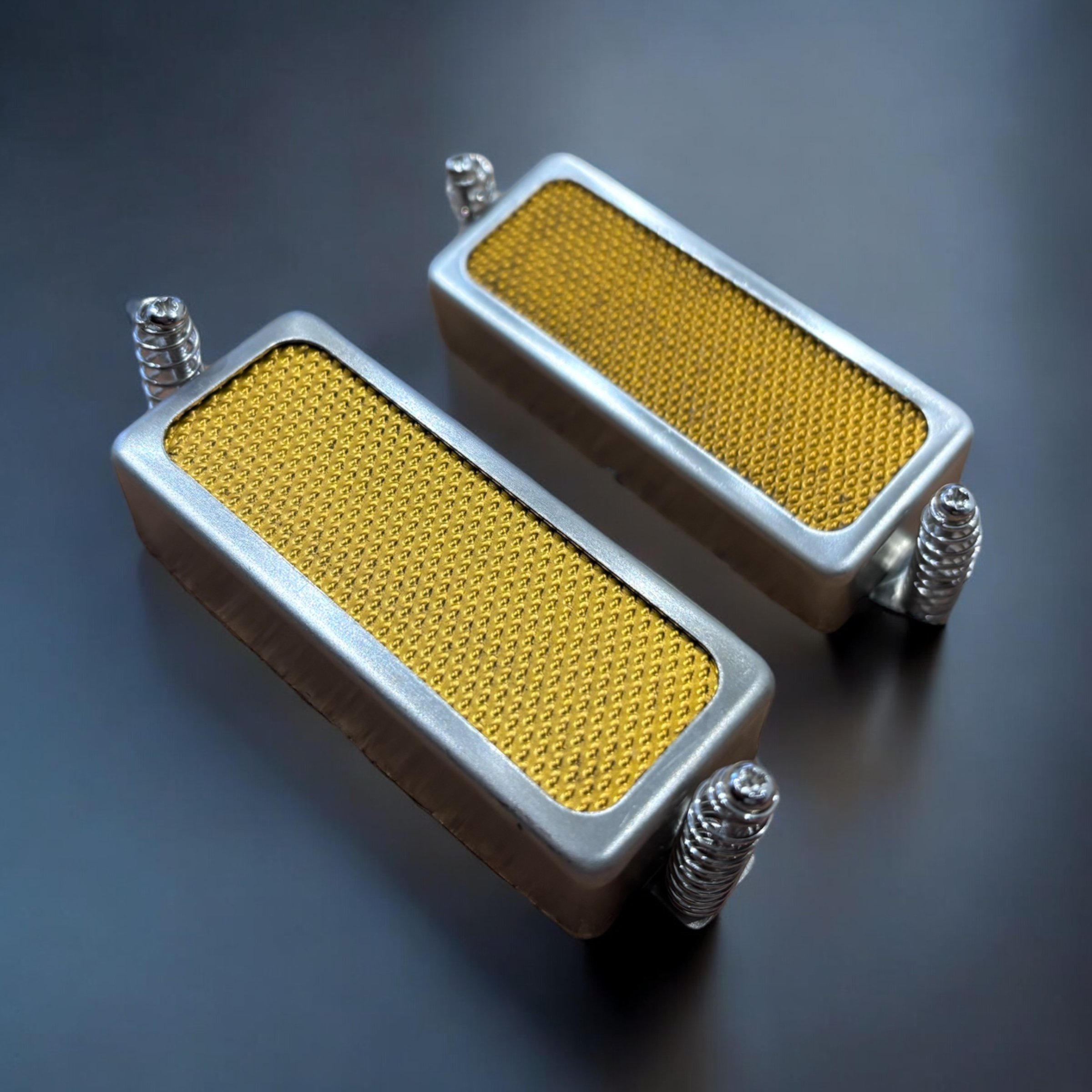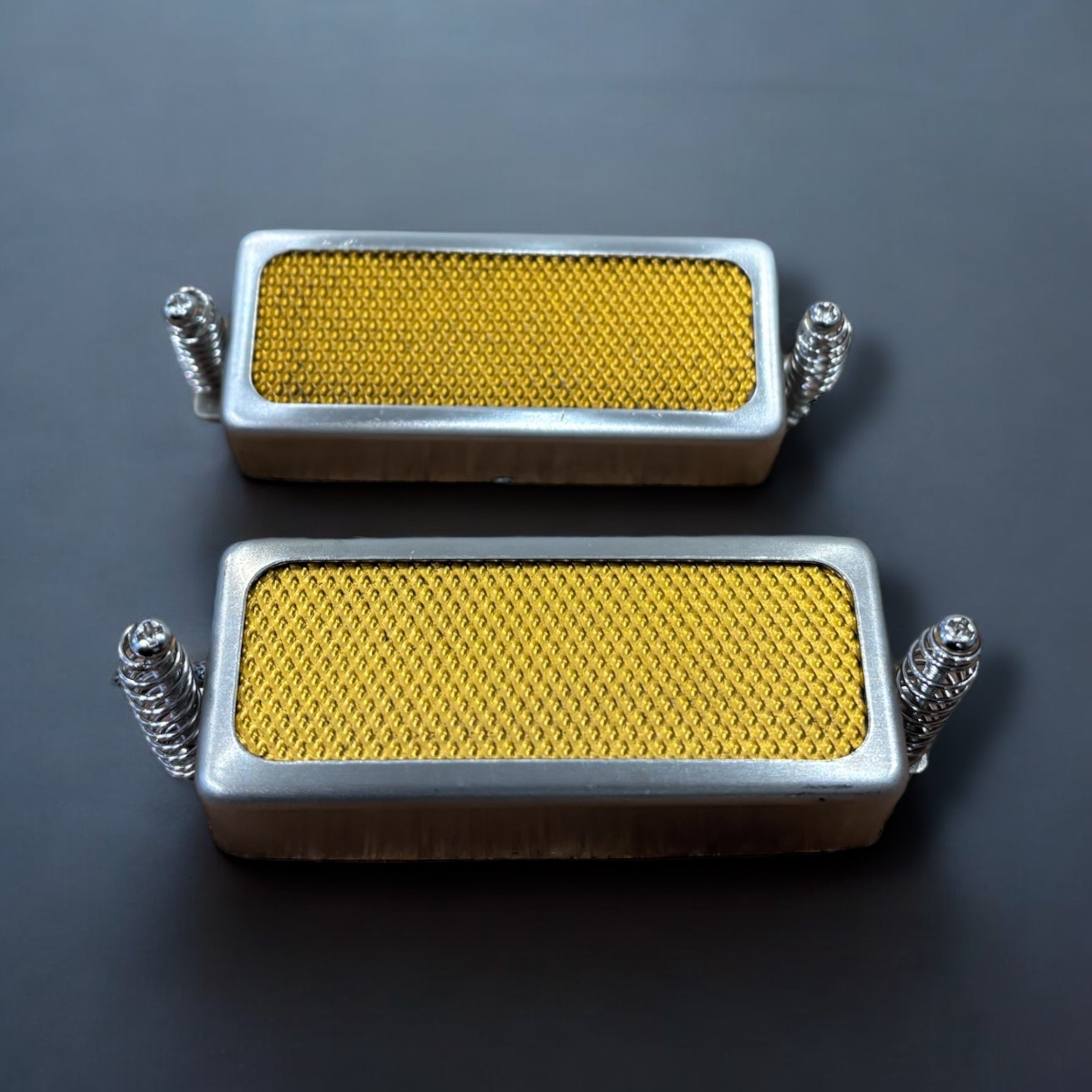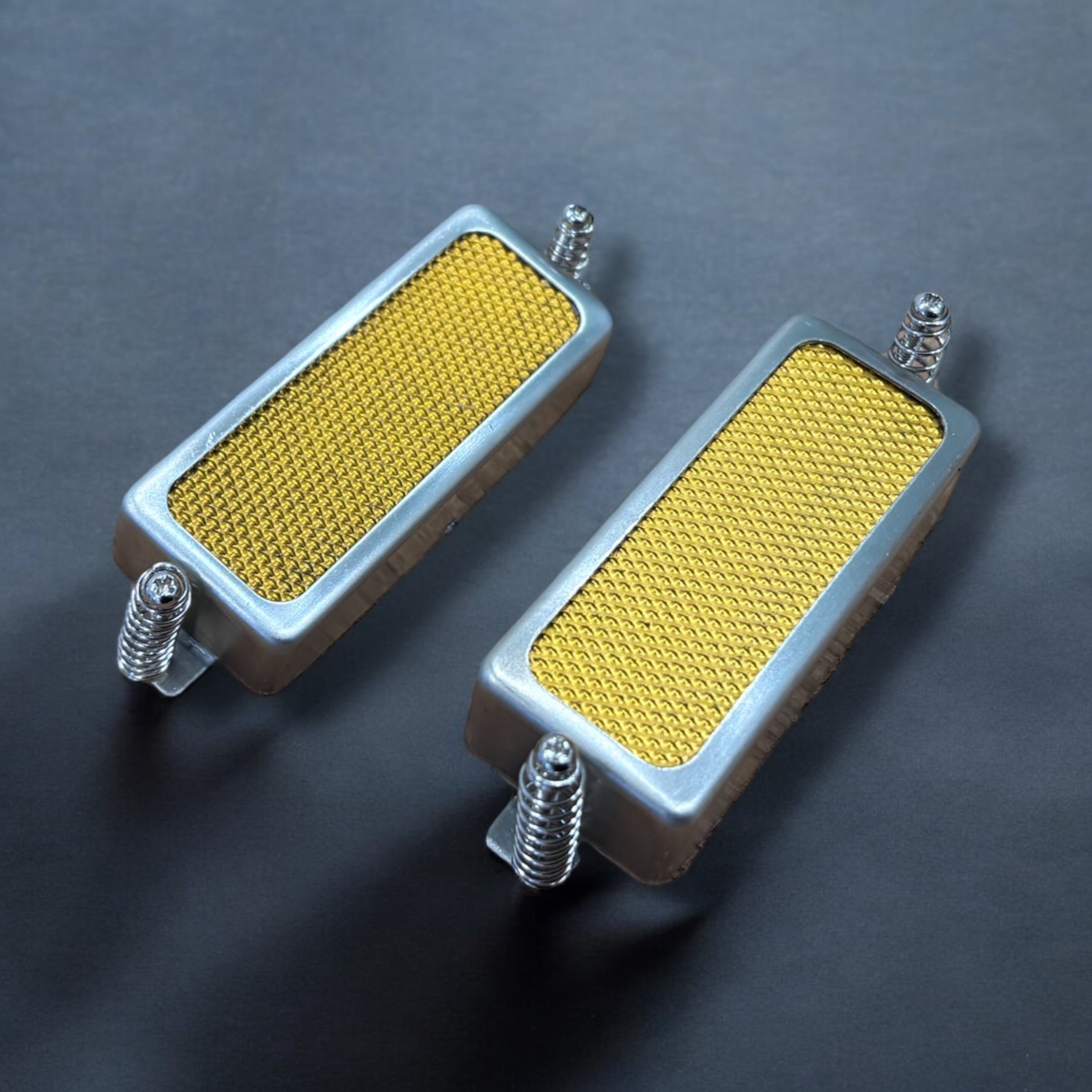The MiniBucker
When Gibson acquired Epiphone in the late 1950s, they gained access to mini-humbucker technology. Gibson then began incorporating mini-humbuckers into various guitar models. These pickups continued to be used in many Epiphone electric guitars, which are now manufactured under a Gibson license and are in several of their archtop jazz guitars.
In my opinion, the mini-humbucker is similar to a PAF in looks only. Its smaller size means it senses a shorter length of string vibration. Sound-wise, it’s more rounded and warmer sitting somewhere between a single coil and a full-sized humbucker. They’re great for that blues-rock guitar sound and have a plug-and-play style of tone.
Desperate for the tones of a full-sized humbucker in a mini-humbucker route? Unfortunately, you’re not going to get that. I’d argue that all mini-humbuckers on the market share this limitation. However, the MiniBucker is a great example of what can be achieved within the constraints of that little metal box.
Specs:
String Spacing: Bridge- 50mm, Neck- 50mm
Wiring: Braided cable with cloth Inner core
Resistance: 6.2k (+/-5%)
Inductance: Bridge- 3.7H (+/-5%)
Magnets: Alnico II
Wire: 42AWG Plain Enamel
Handmade in Manchester UK
When Gibson acquired Epiphone in the late 1950s, they gained access to mini-humbucker technology. Gibson then began incorporating mini-humbuckers into various guitar models. These pickups continued to be used in many Epiphone electric guitars, which are now manufactured under a Gibson license and are in several of their archtop jazz guitars.
In my opinion, the mini-humbucker is similar to a PAF in looks only. Its smaller size means it senses a shorter length of string vibration. Sound-wise, it’s more rounded and warmer sitting somewhere between a single coil and a full-sized humbucker. They’re great for that blues-rock guitar sound and have a plug-and-play style of tone.
Desperate for the tones of a full-sized humbucker in a mini-humbucker route? Unfortunately, you’re not going to get that. I’d argue that all mini-humbuckers on the market share this limitation. However, the MiniBucker is a great example of what can be achieved within the constraints of that little metal box.
Specs:
String Spacing: Bridge- 50mm, Neck- 50mm
Wiring: Braided cable with cloth Inner core
Resistance: 6.2k (+/-5%)
Inductance: Bridge- 3.7H (+/-5%)
Magnets: Alnico II
Wire: 42AWG Plain Enamel
Handmade in Manchester UK
When Gibson acquired Epiphone in the late 1950s, they gained access to mini-humbucker technology. Gibson then began incorporating mini-humbuckers into various guitar models. These pickups continued to be used in many Epiphone electric guitars, which are now manufactured under a Gibson license and are in several of their archtop jazz guitars.
In my opinion, the mini-humbucker is similar to a PAF in looks only. Its smaller size means it senses a shorter length of string vibration. Sound-wise, it’s more rounded and warmer sitting somewhere between a single coil and a full-sized humbucker. They’re great for that blues-rock guitar sound and have a plug-and-play style of tone.
Desperate for the tones of a full-sized humbucker in a mini-humbucker route? Unfortunately, you’re not going to get that. I’d argue that all mini-humbuckers on the market share this limitation. However, the MiniBucker is a great example of what can be achieved within the constraints of that little metal box.
Specs:
String Spacing: Bridge- 50mm, Neck- 50mm
Wiring: Braided cable with cloth Inner core
Resistance: 6.2k (+/-5%)
Inductance: Bridge- 3.7H (+/-5%)
Magnets: Alnico II
Wire: 42AWG Plain Enamel
Handmade in Manchester UK

